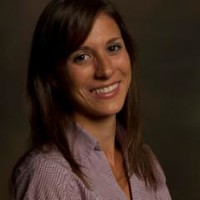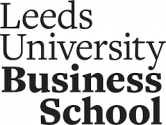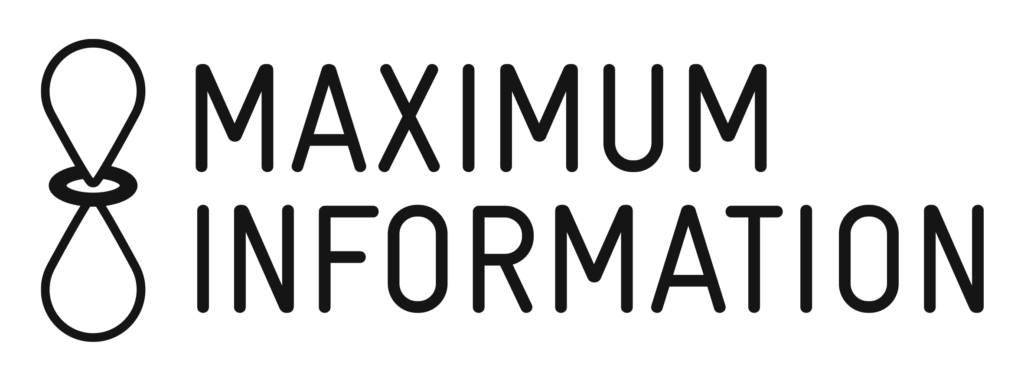HACKATHON 2025
CGFI Hackathon 2025 - Global characteristics of tropical cyclones: climate risk analytics for the reinsurance industry
Our 2025 Hackathon brought together researchers and practitioners to investigate questions related to climate model data, and especially tropical cyclones, of relevance for the reinsurance industry (companies who insure insurers).
The specific question of interest was the probability of landfalling hurricanes on the south-east coast of the US within the same tropical cyclone season as landfalling typhoons in Japan.
Using observations (including re-analysis), decadal and open-source stochastic datasets, teams tackled the challenges from historical, counterfactual, and statistical perspectives, and explored whether probabilities of correlated events can be inferred for the next 5-10 years.
Event photos
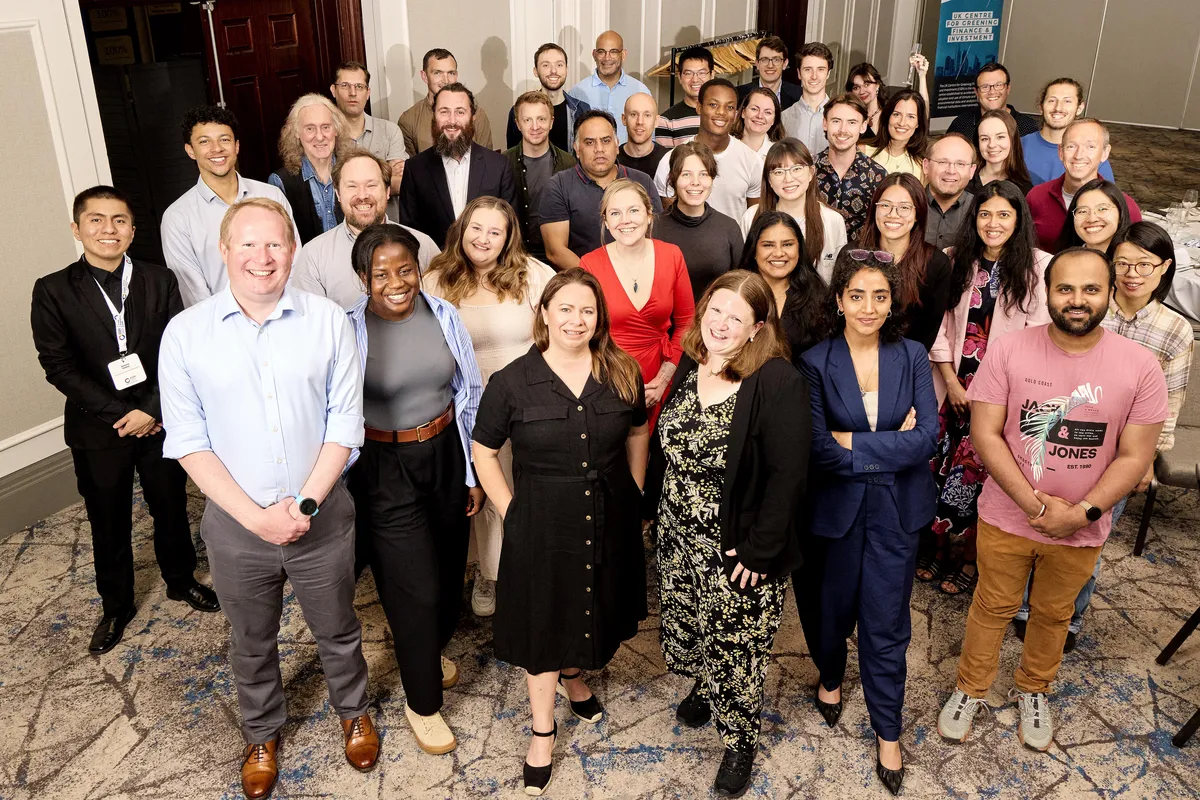
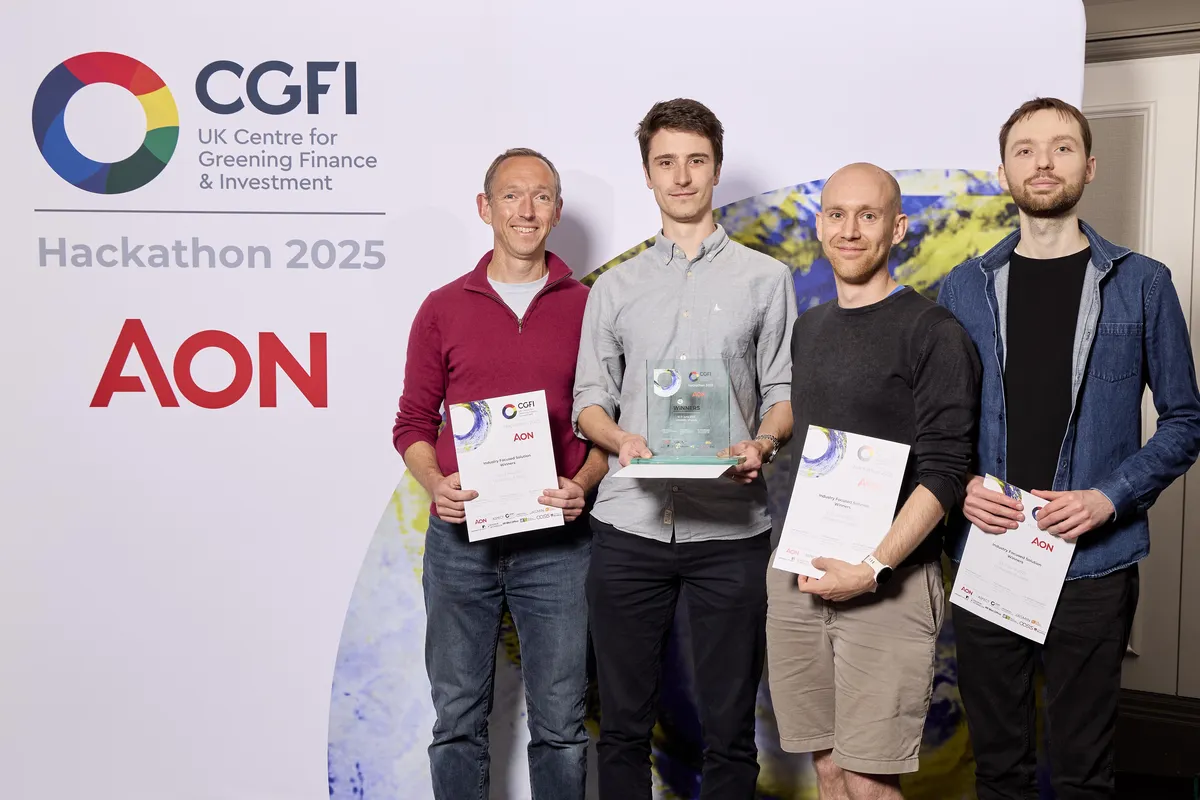
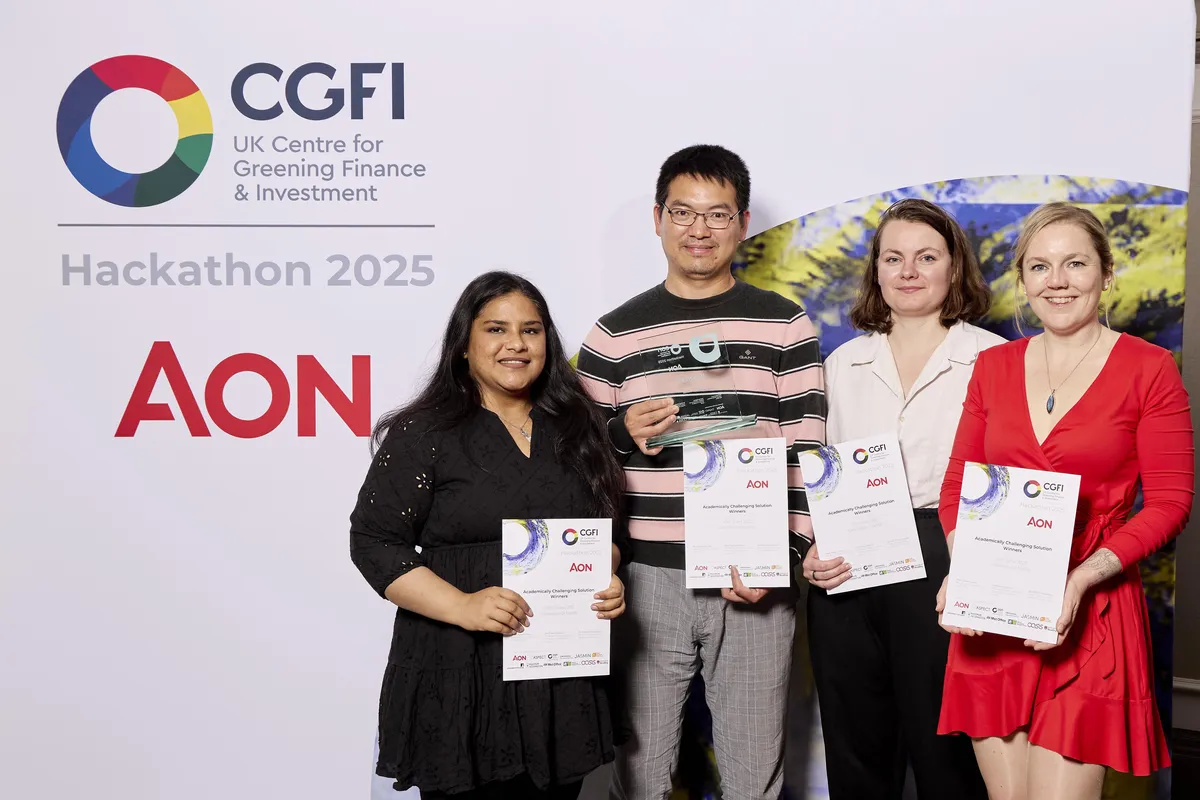
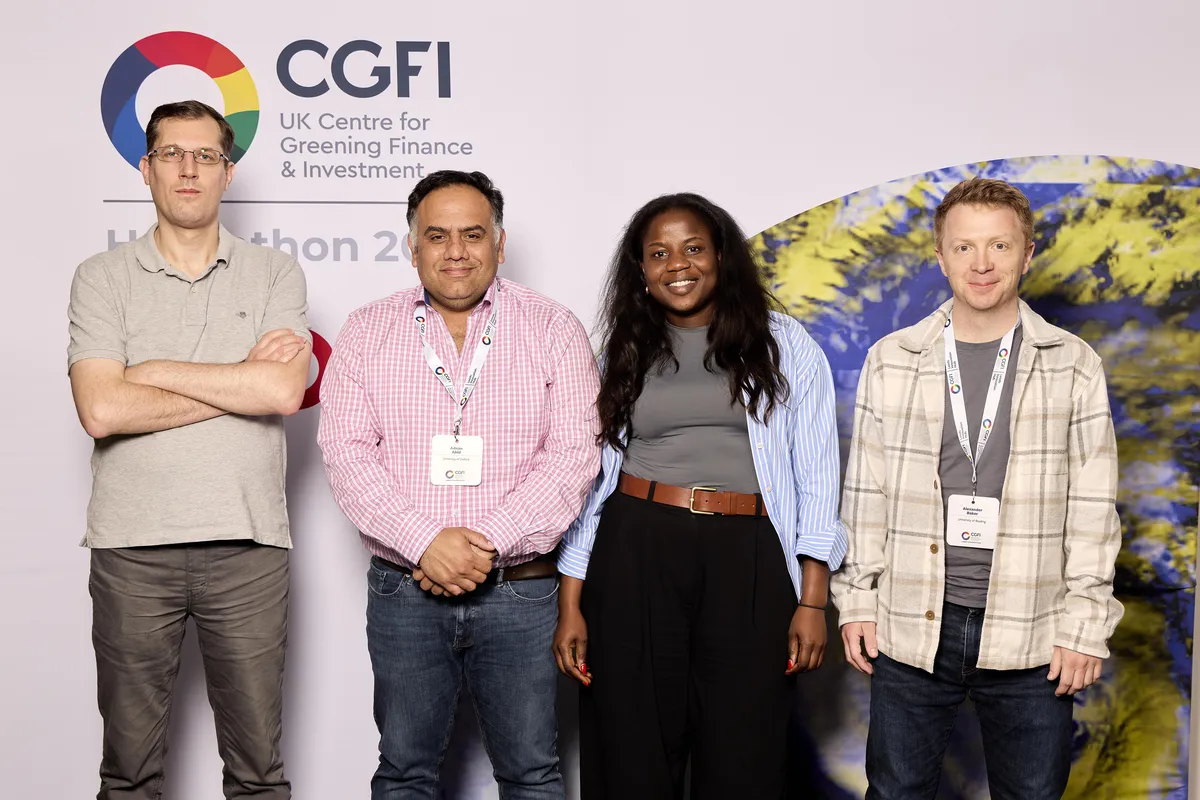

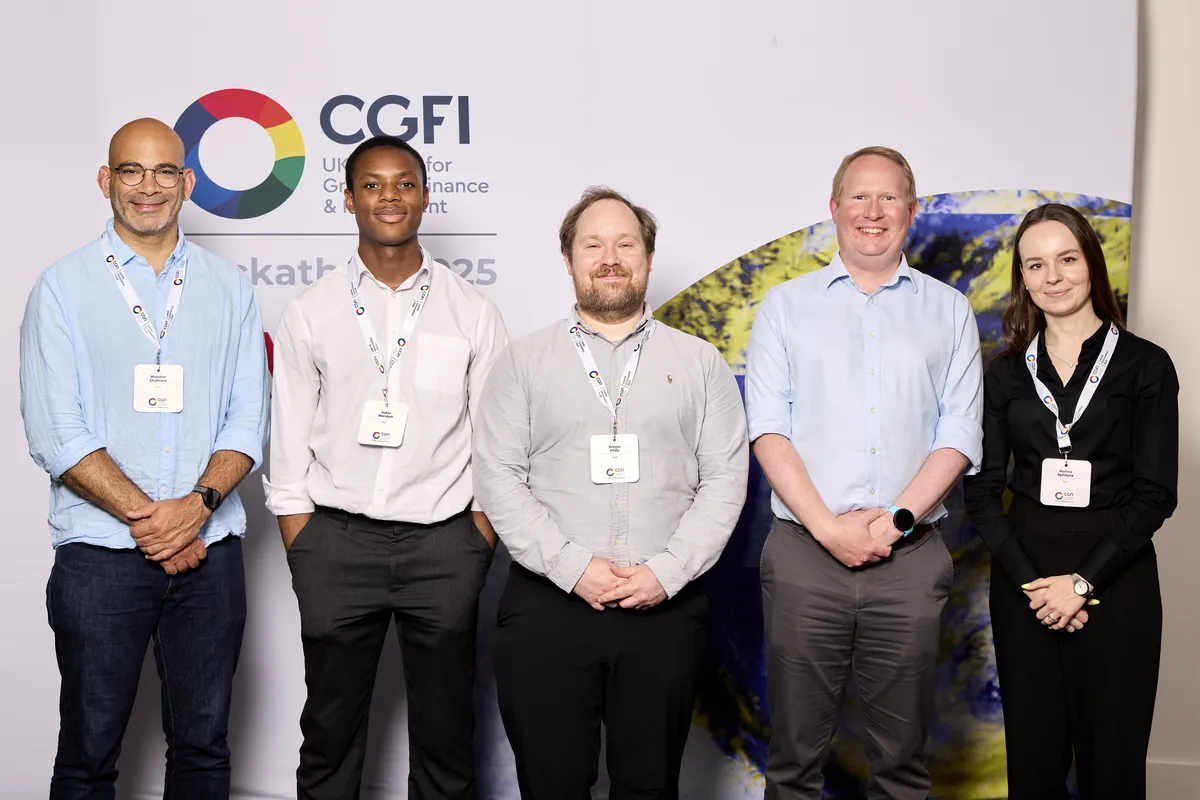
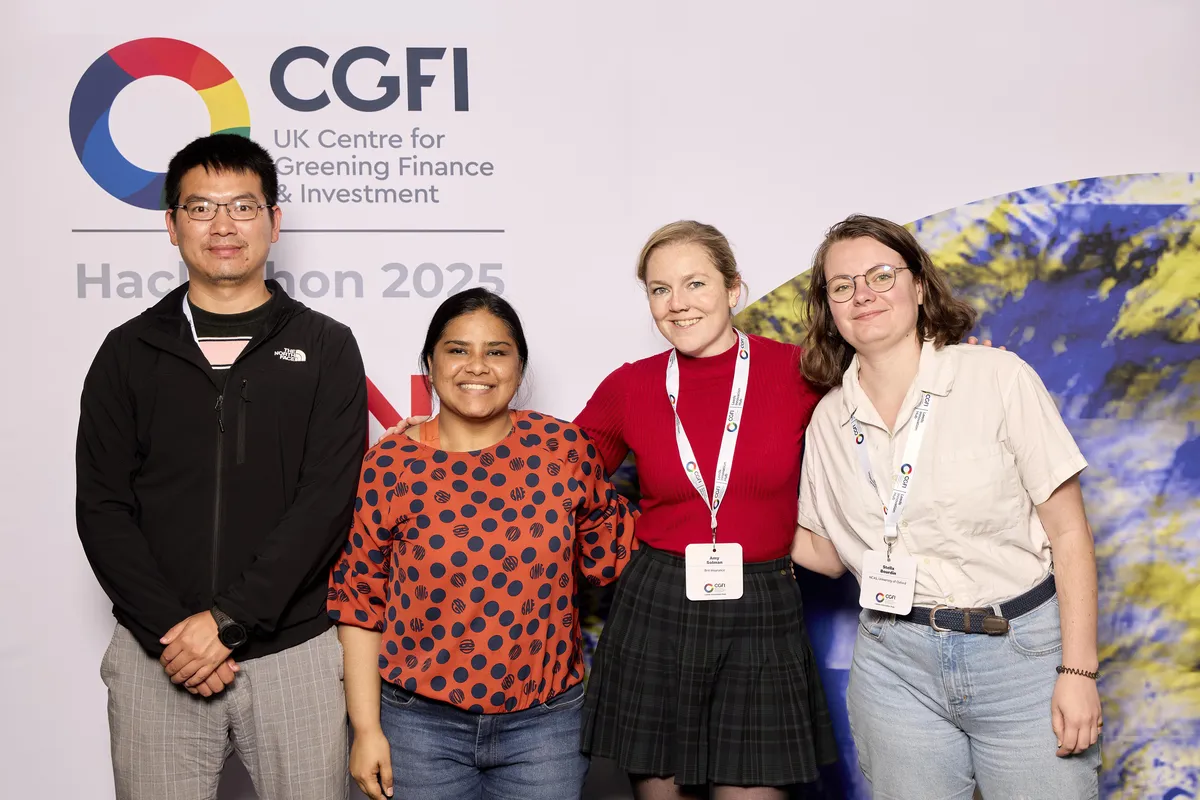
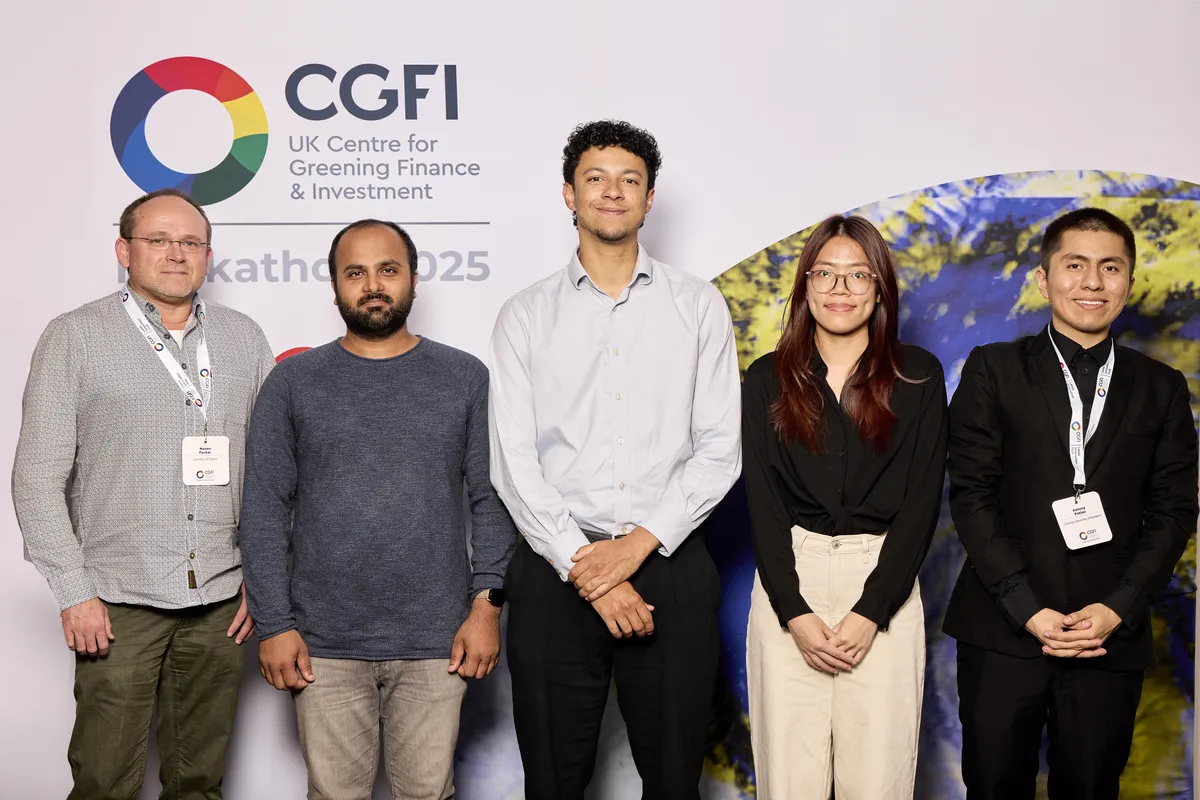

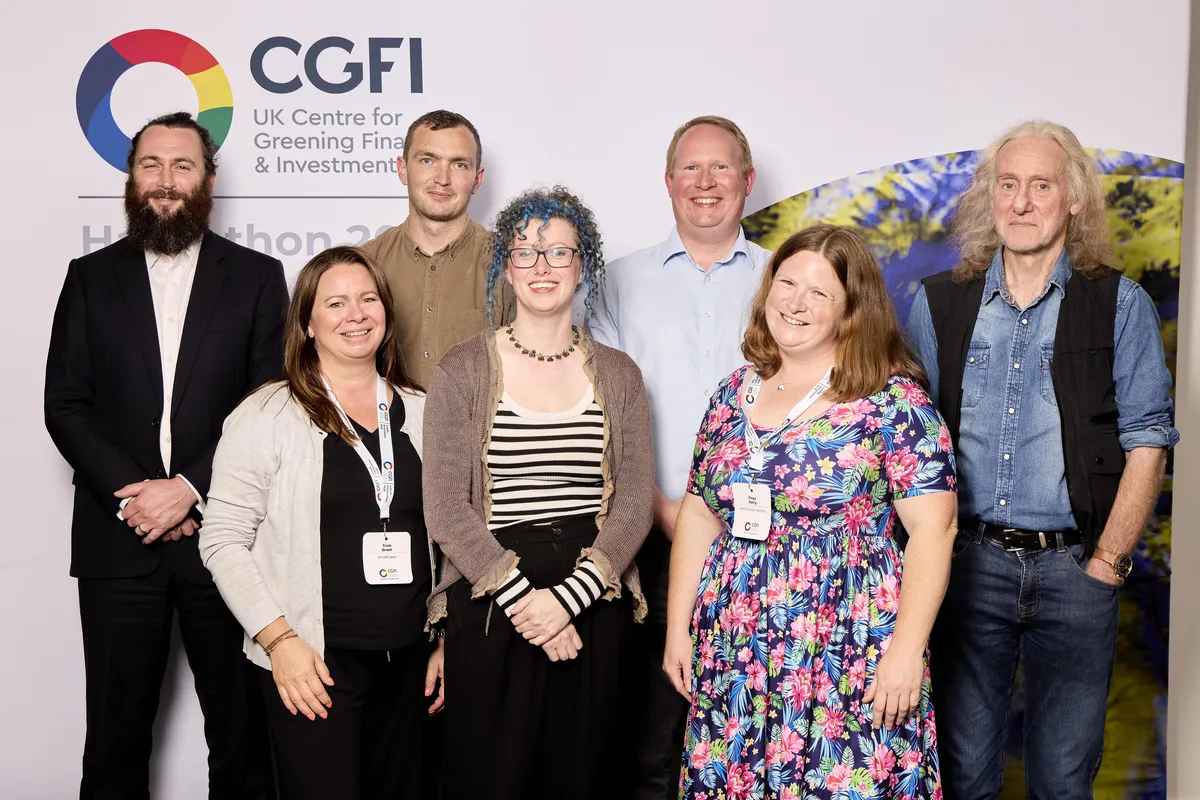
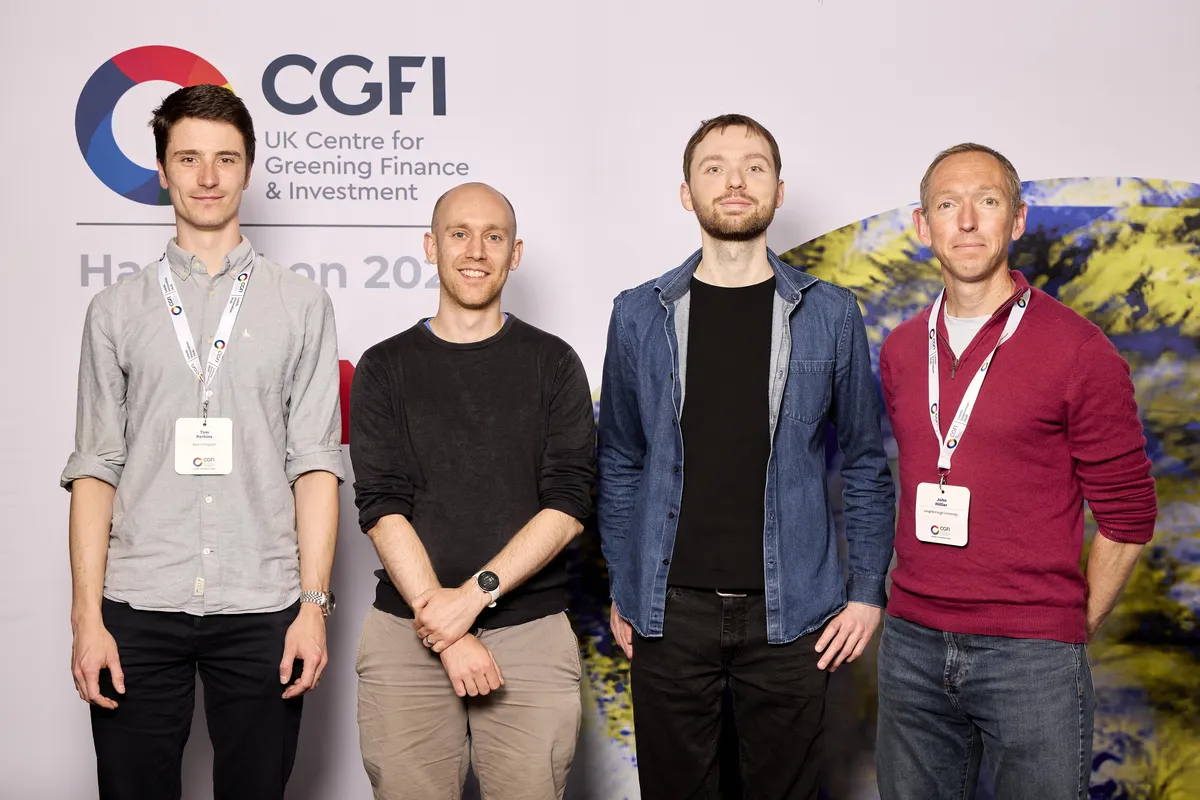
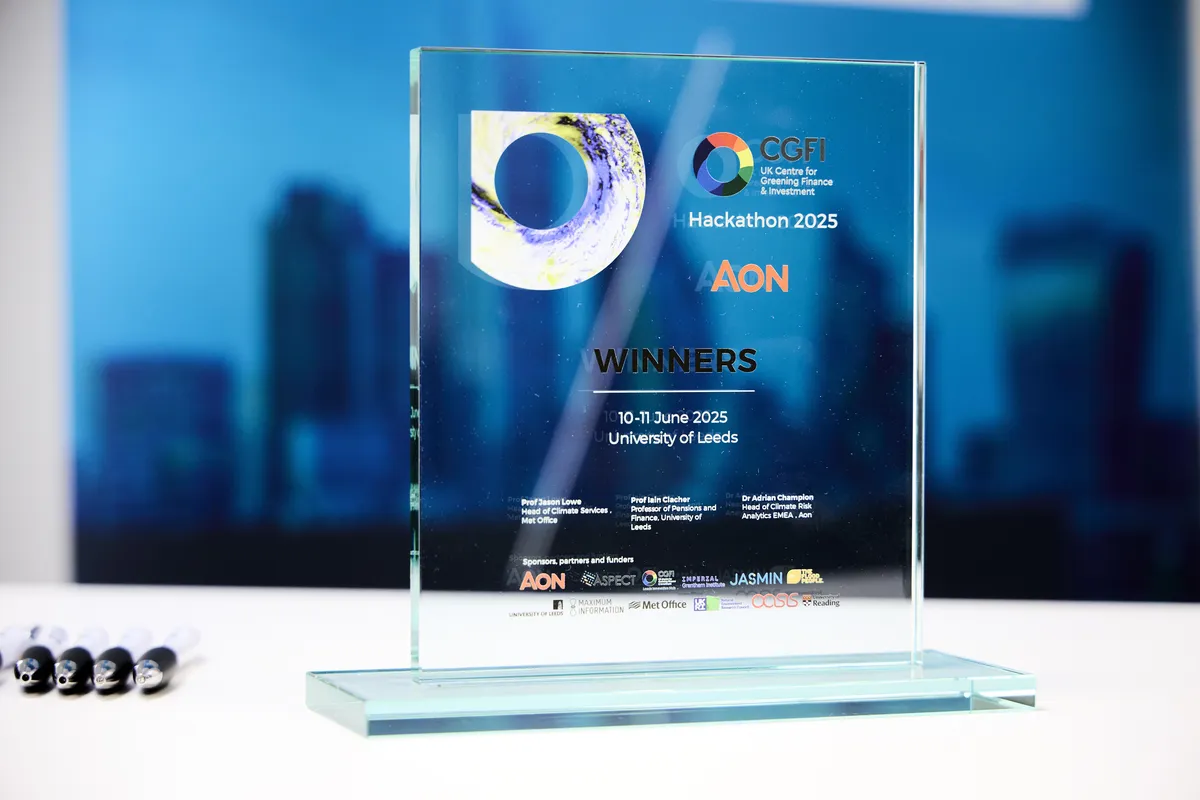

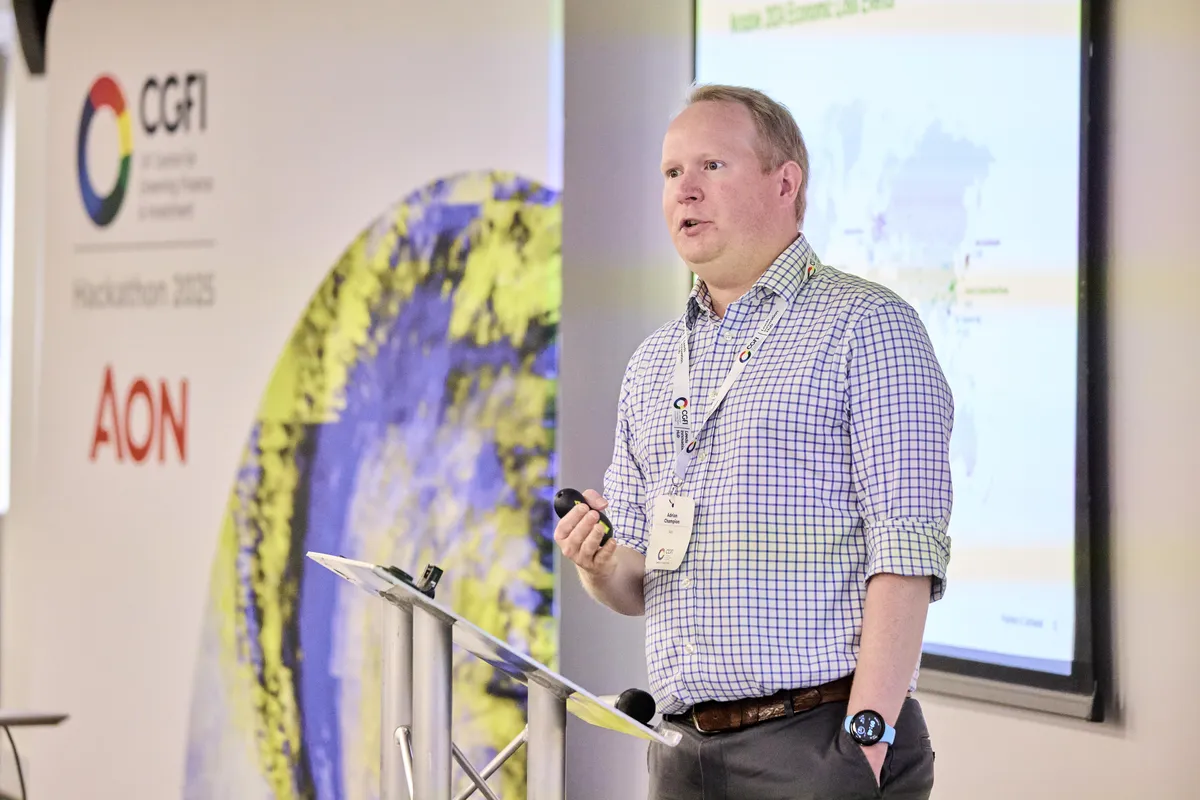
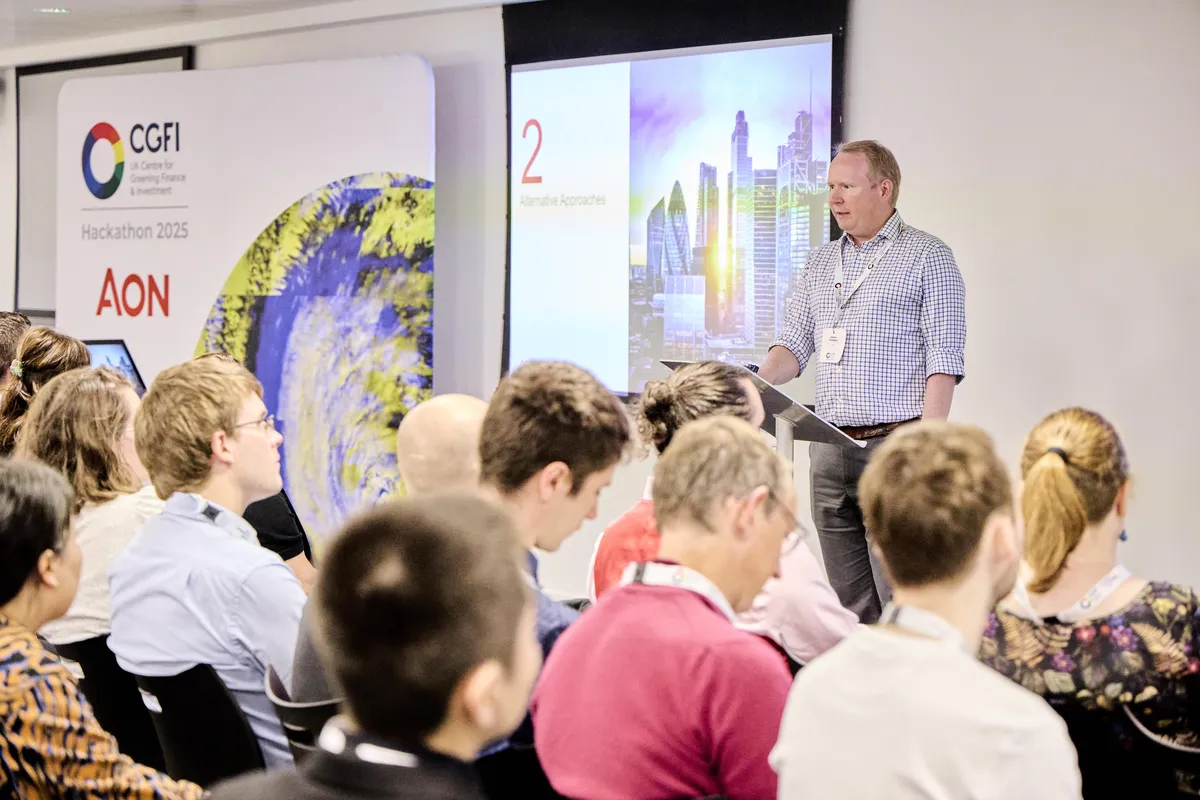


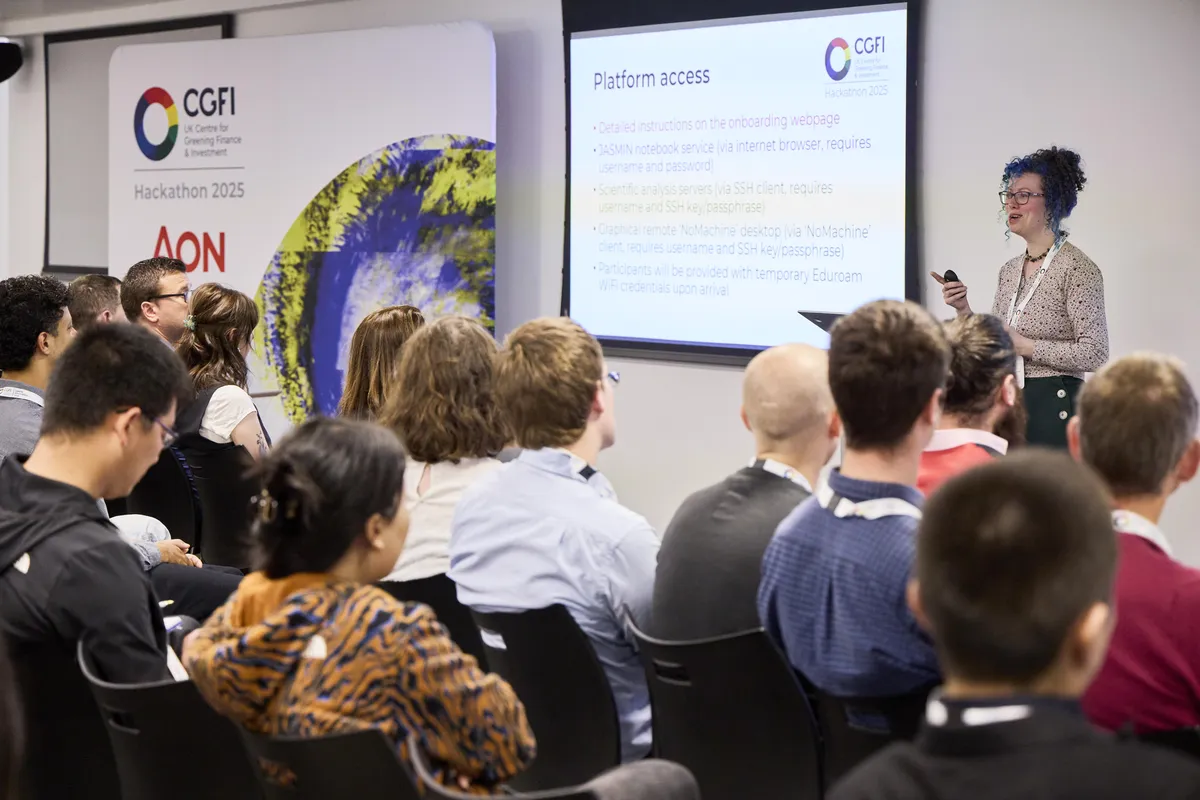
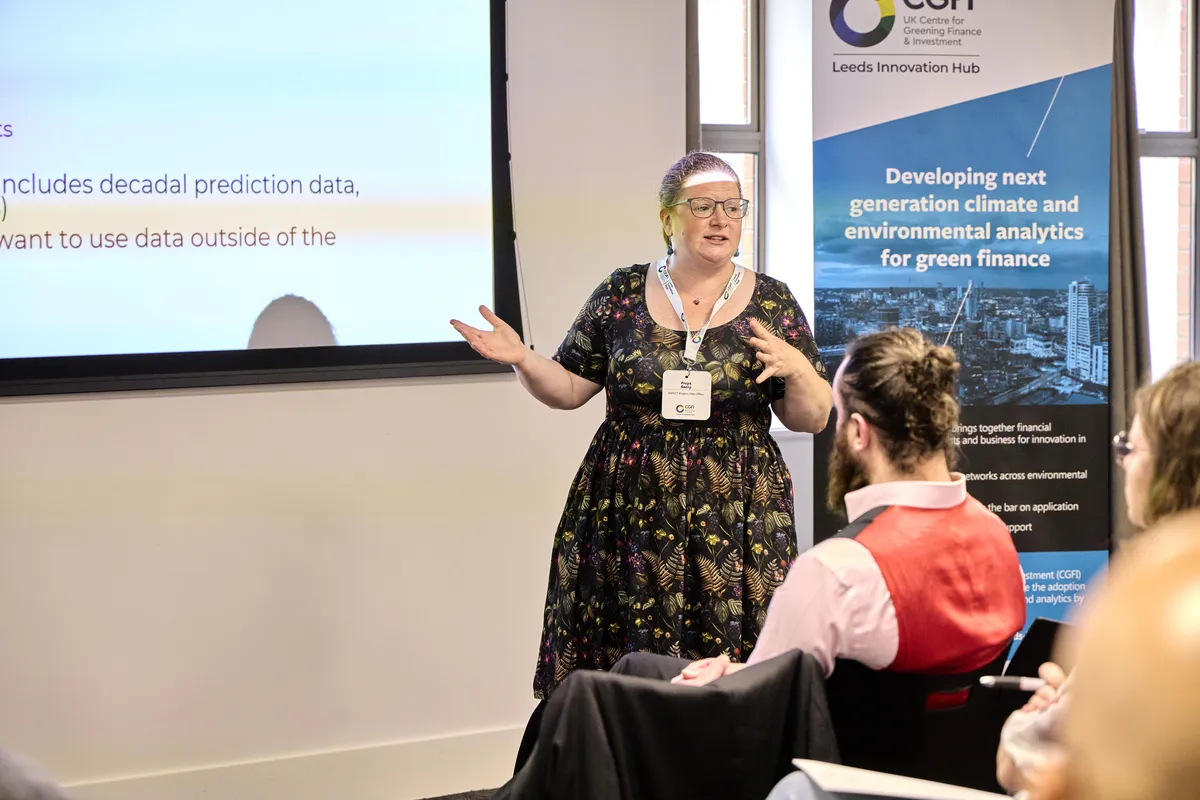
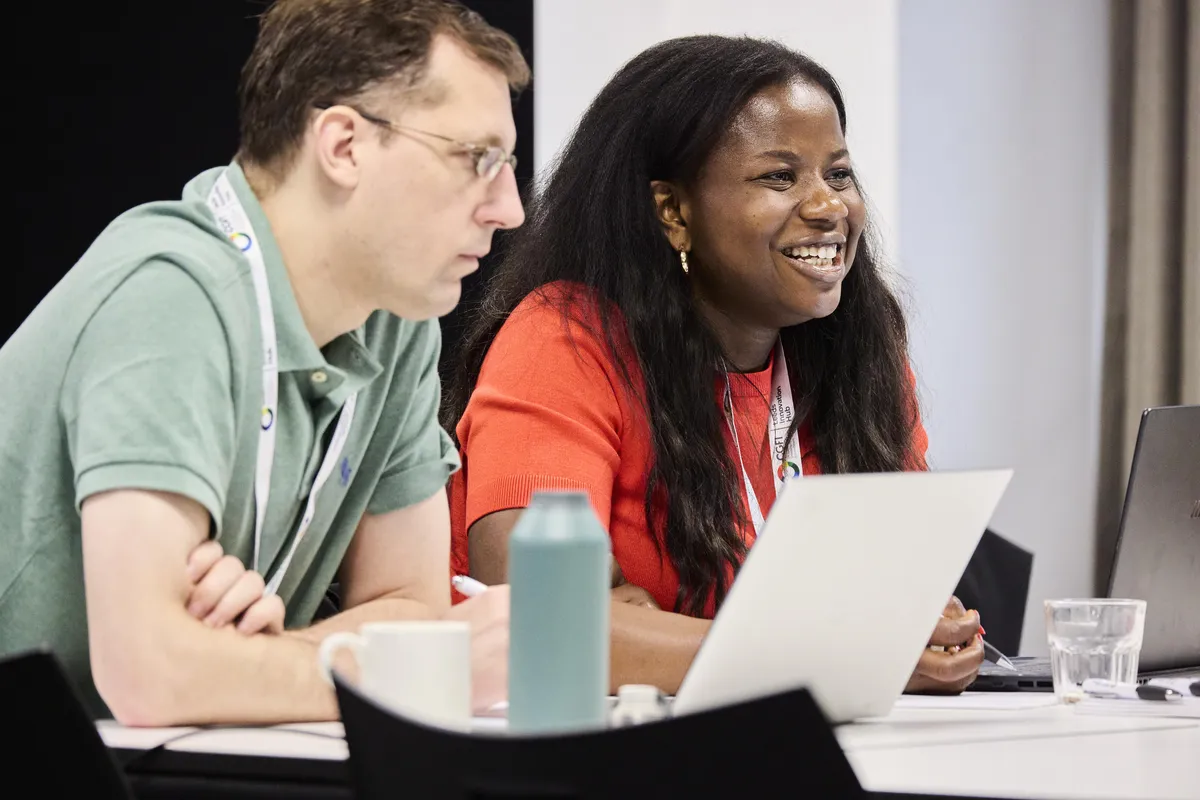
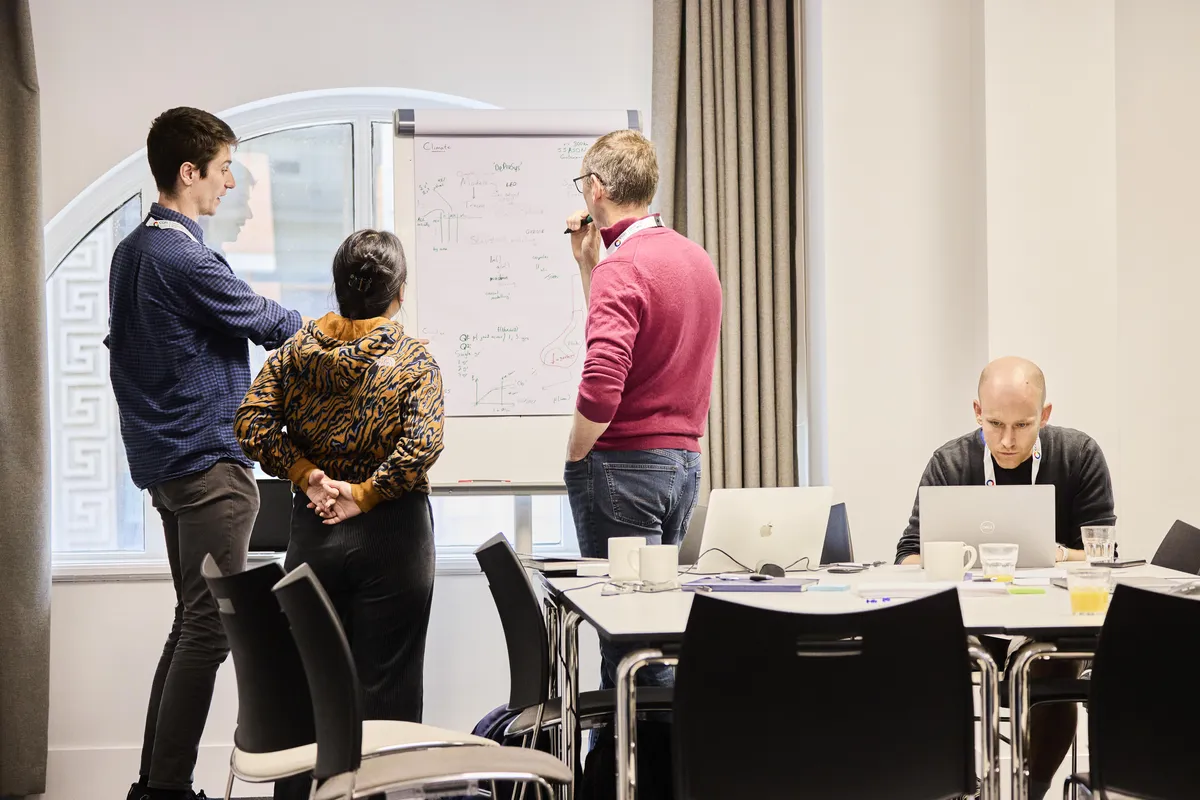
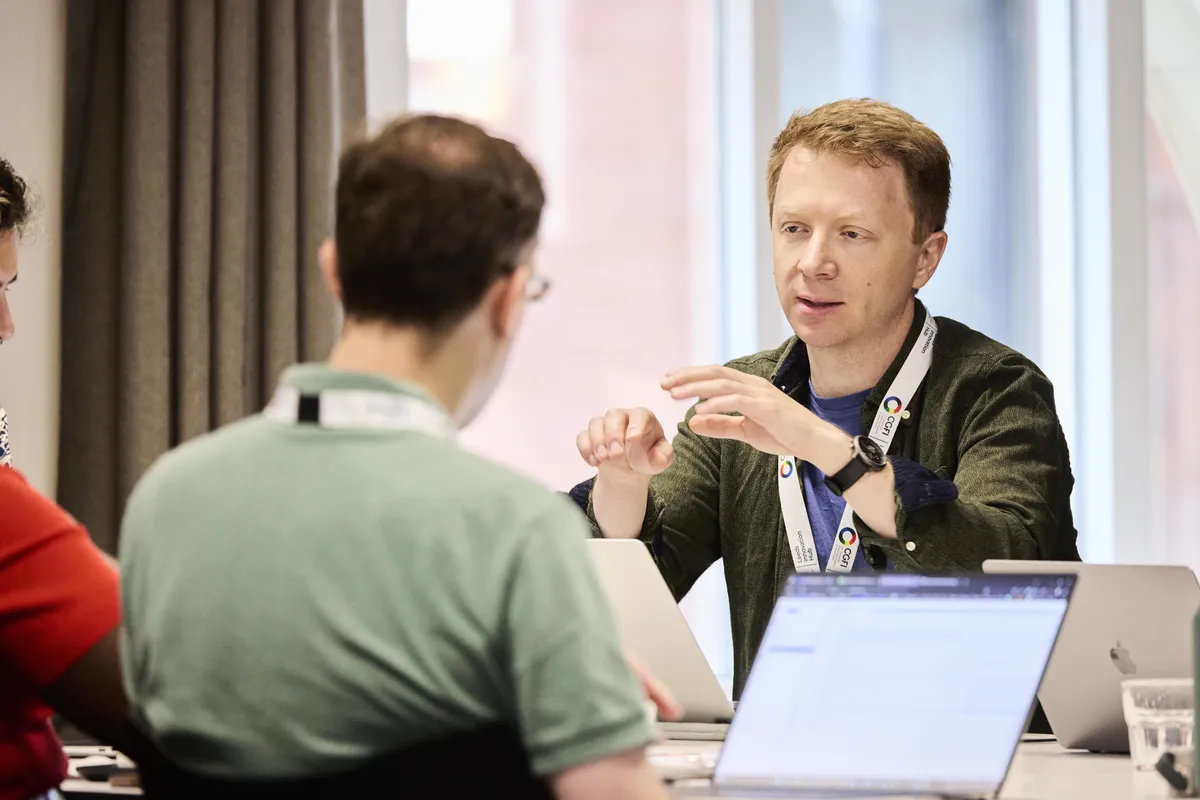
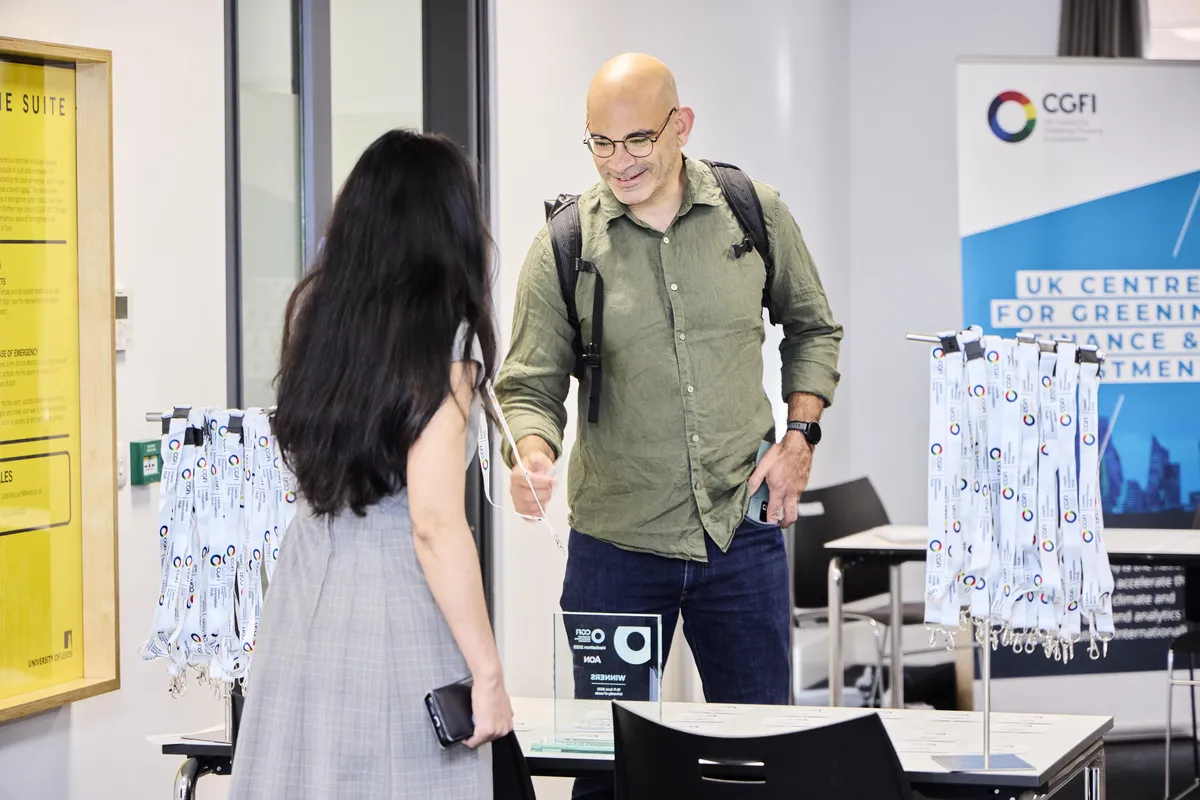
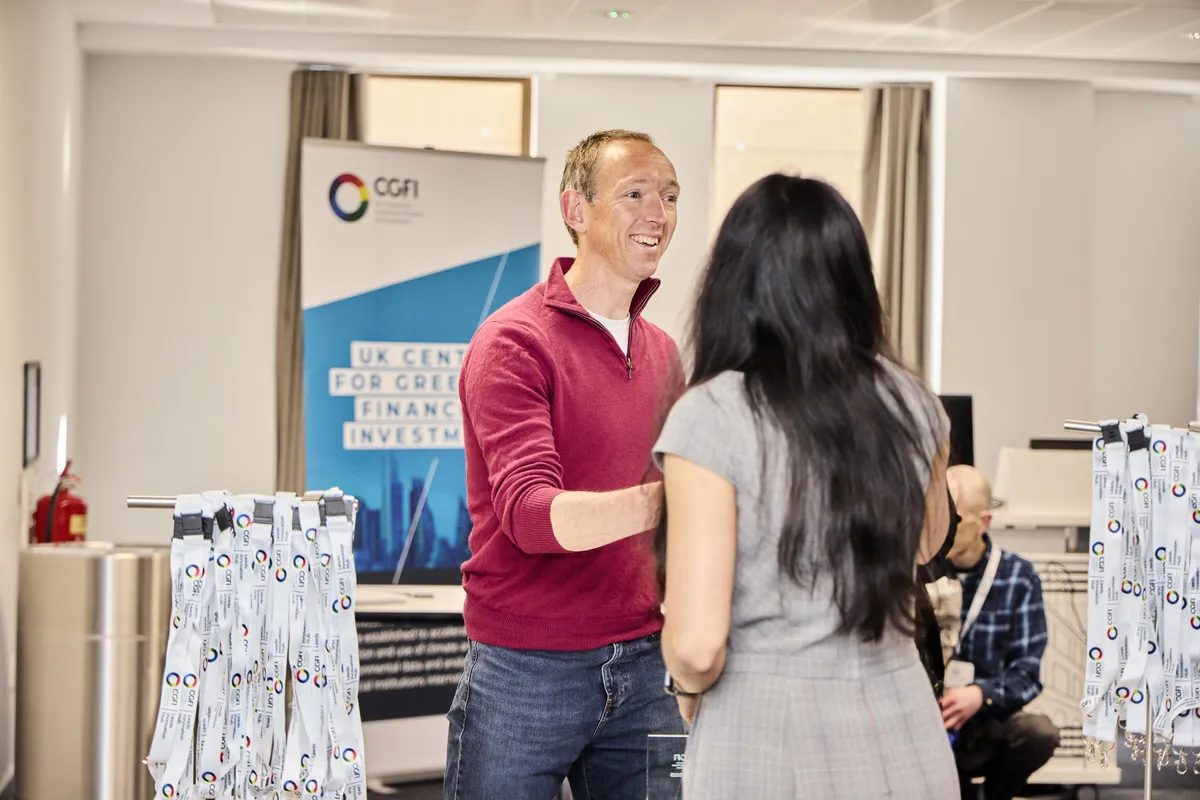
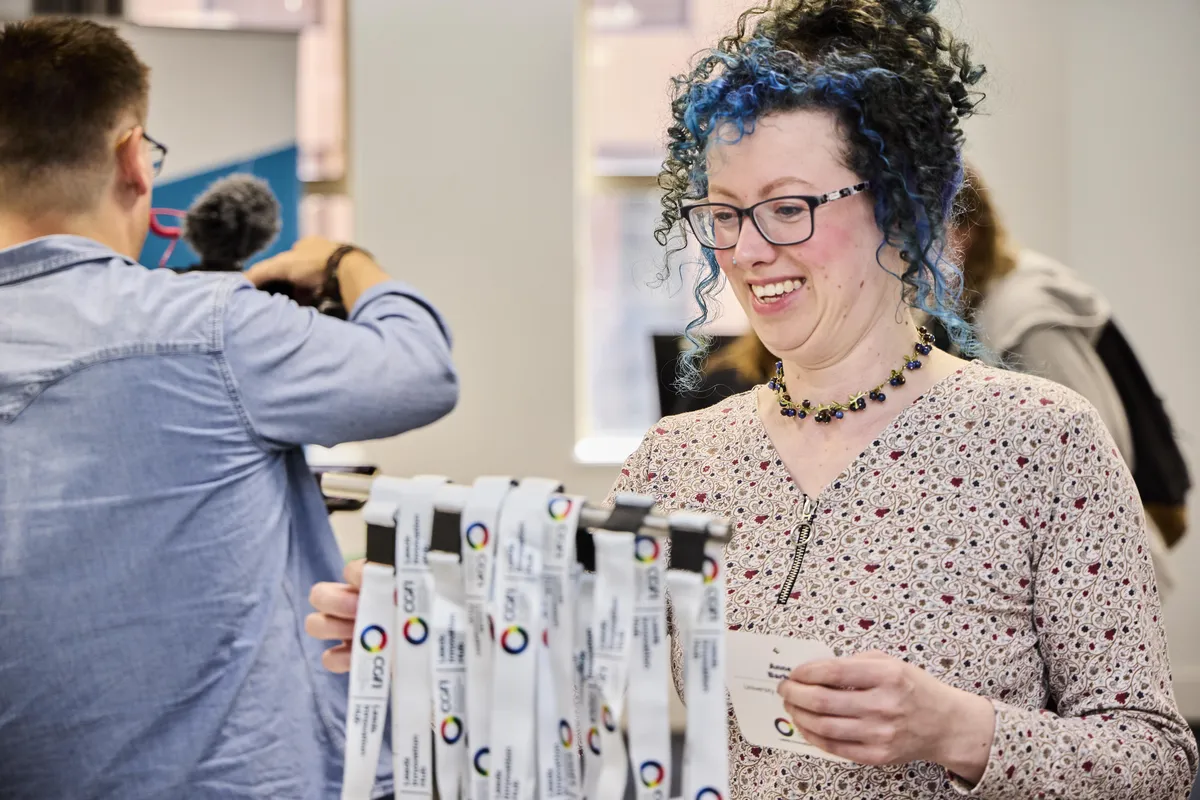

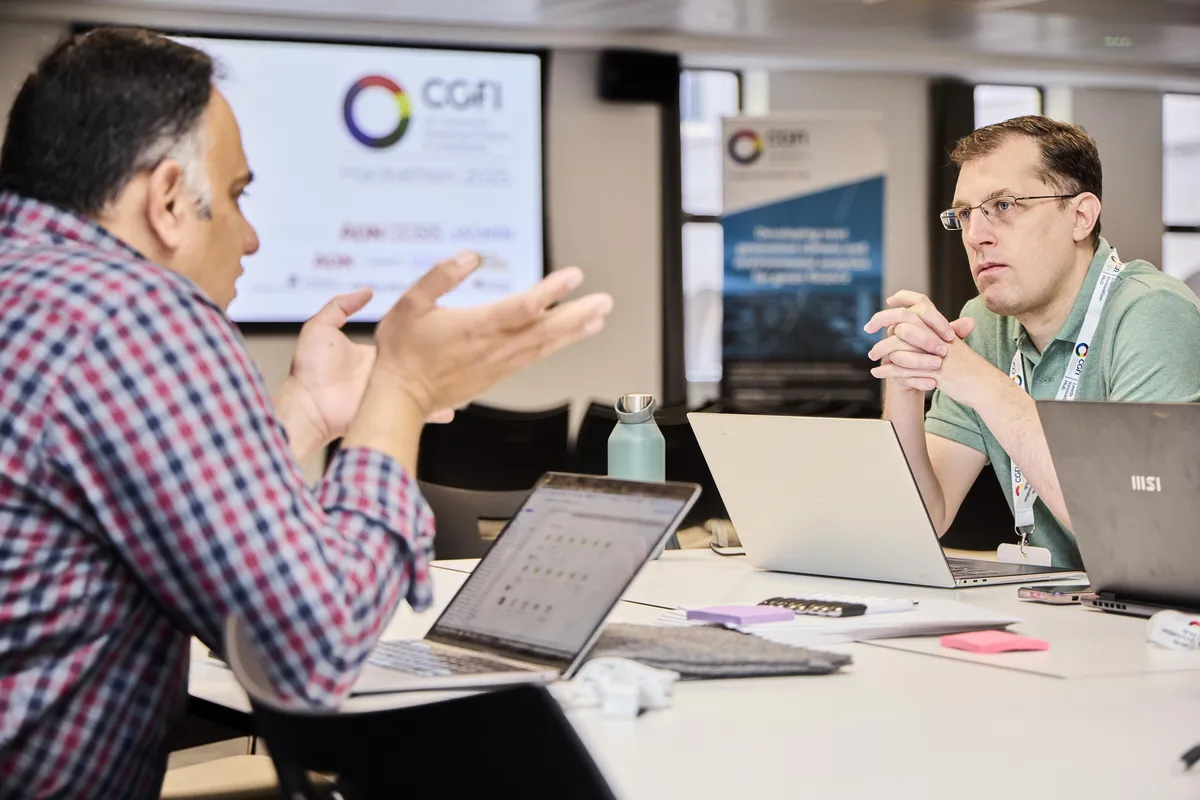

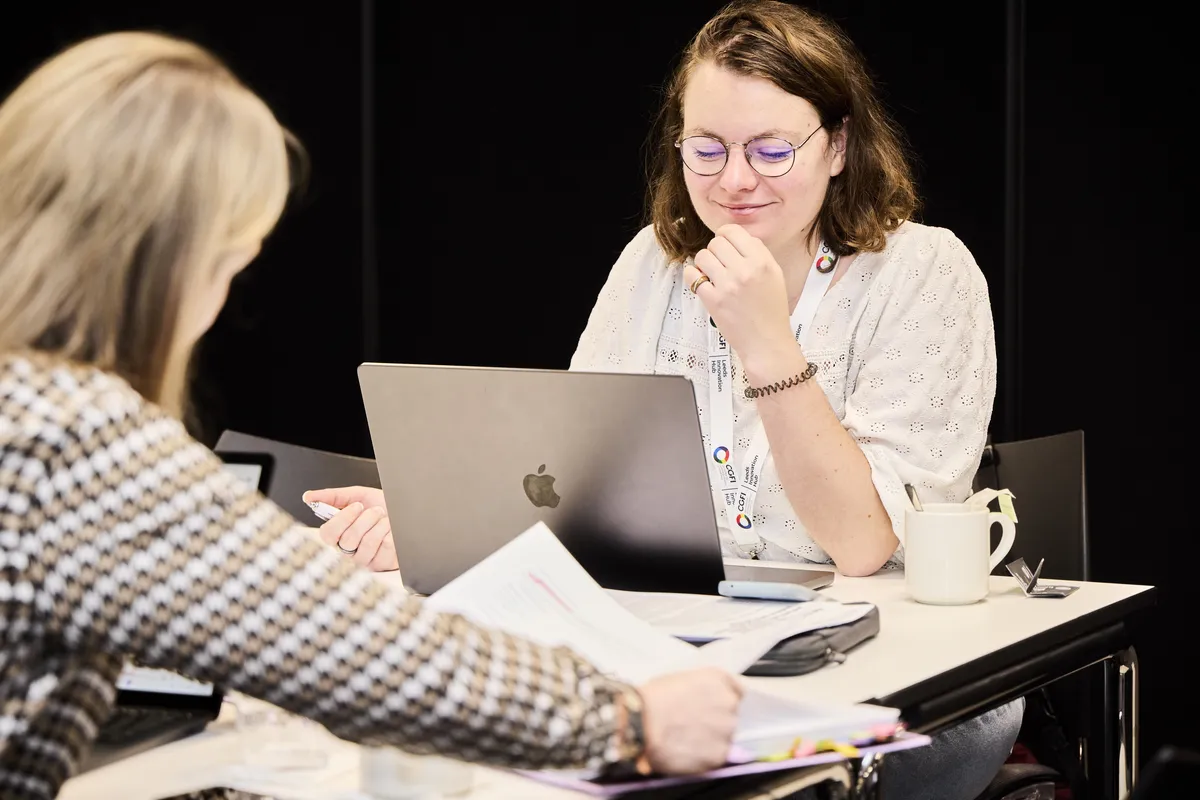
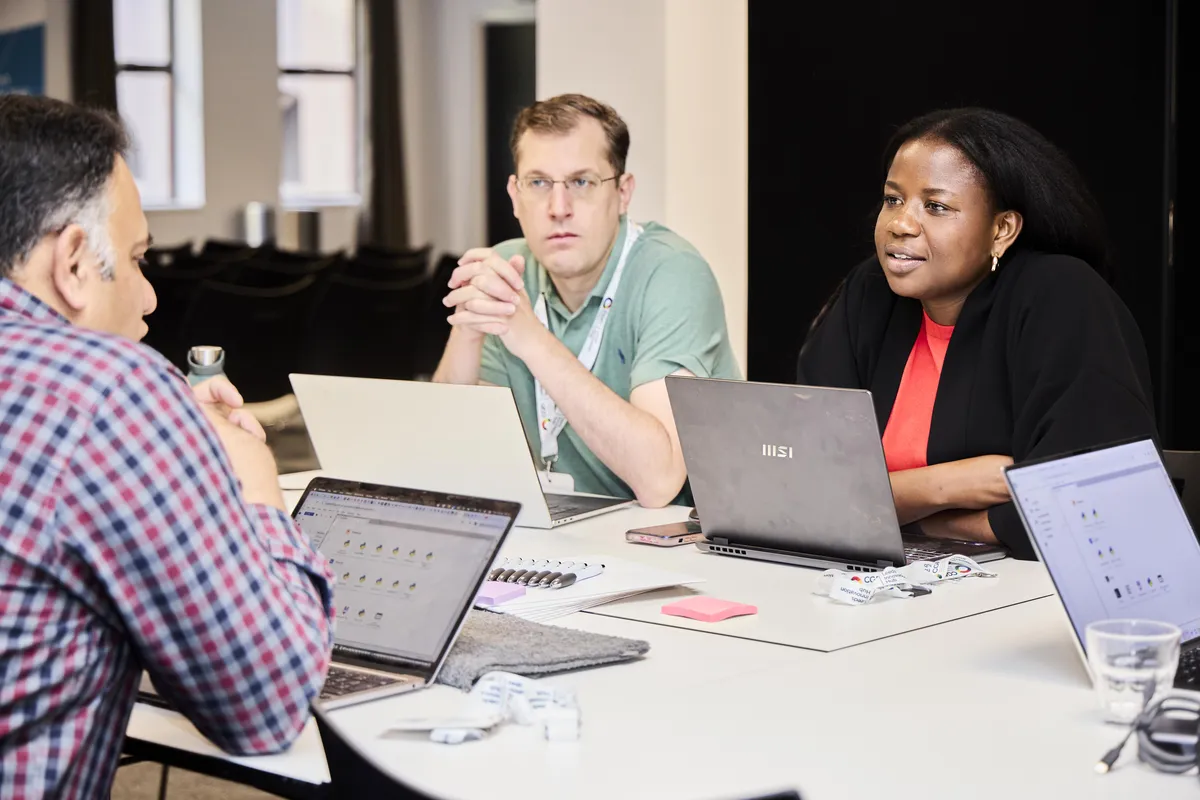
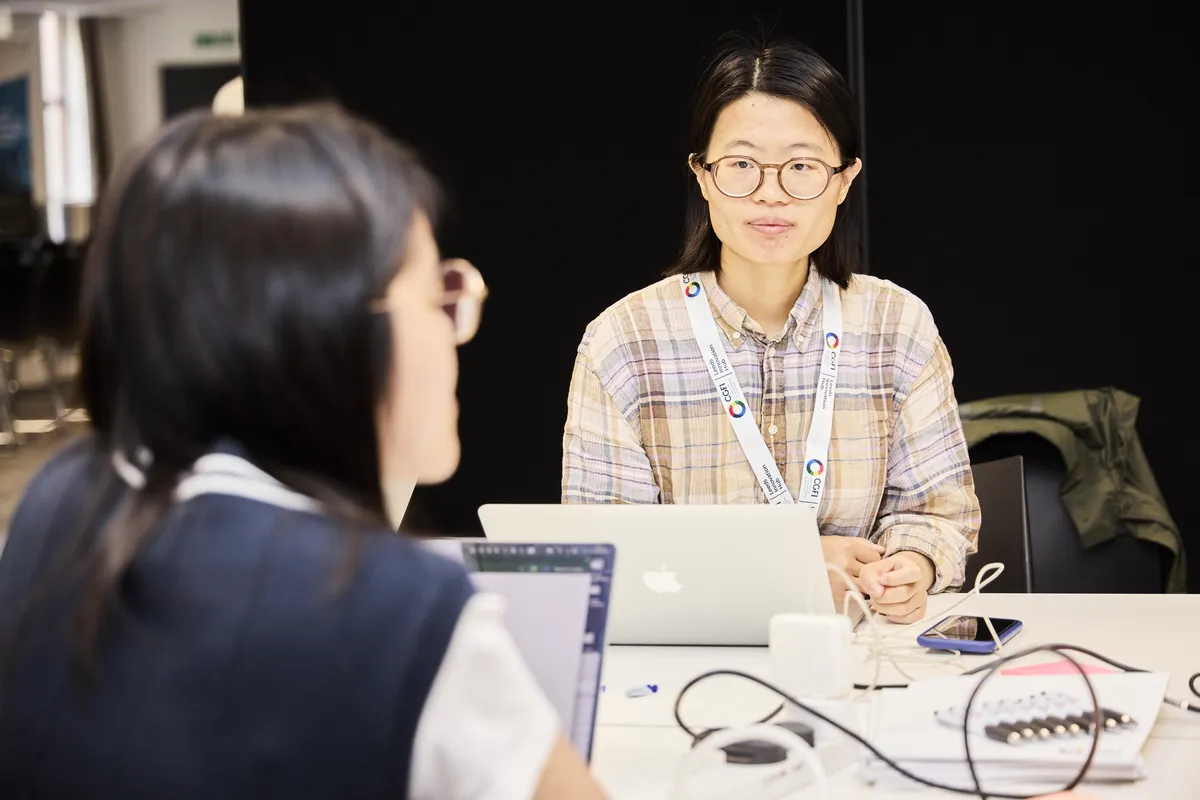
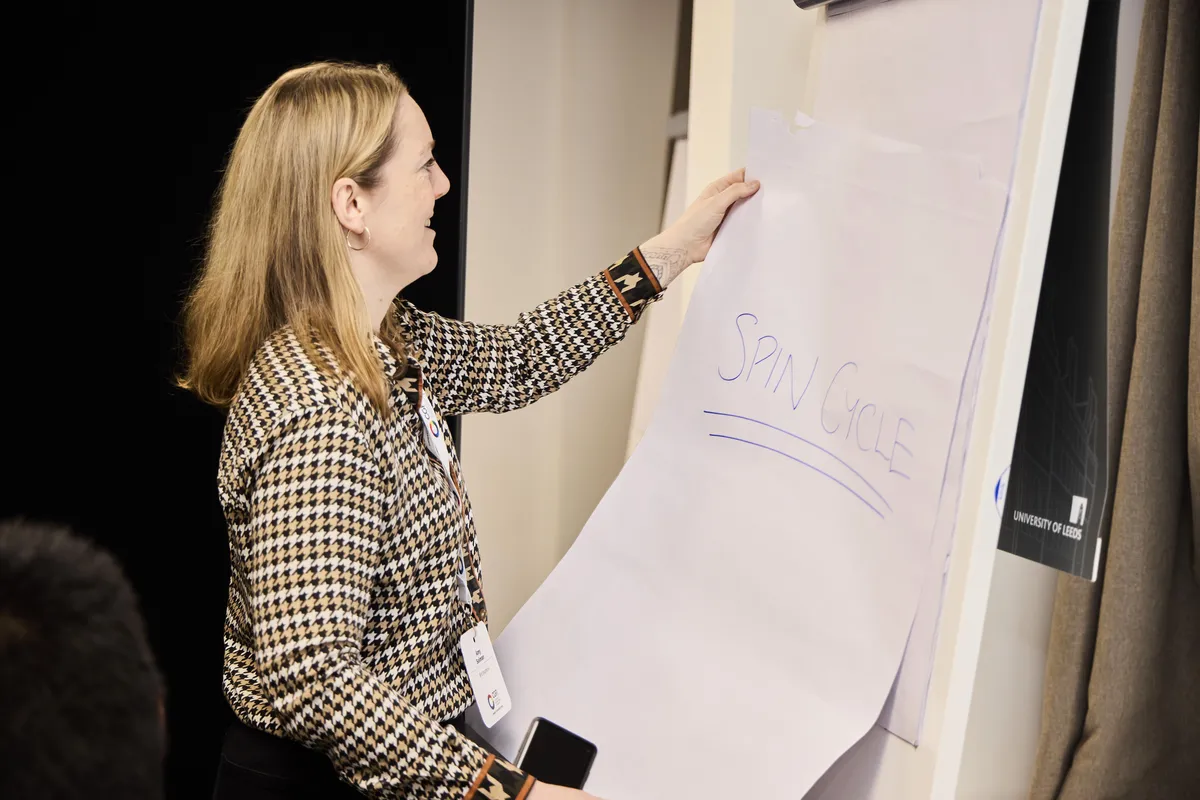



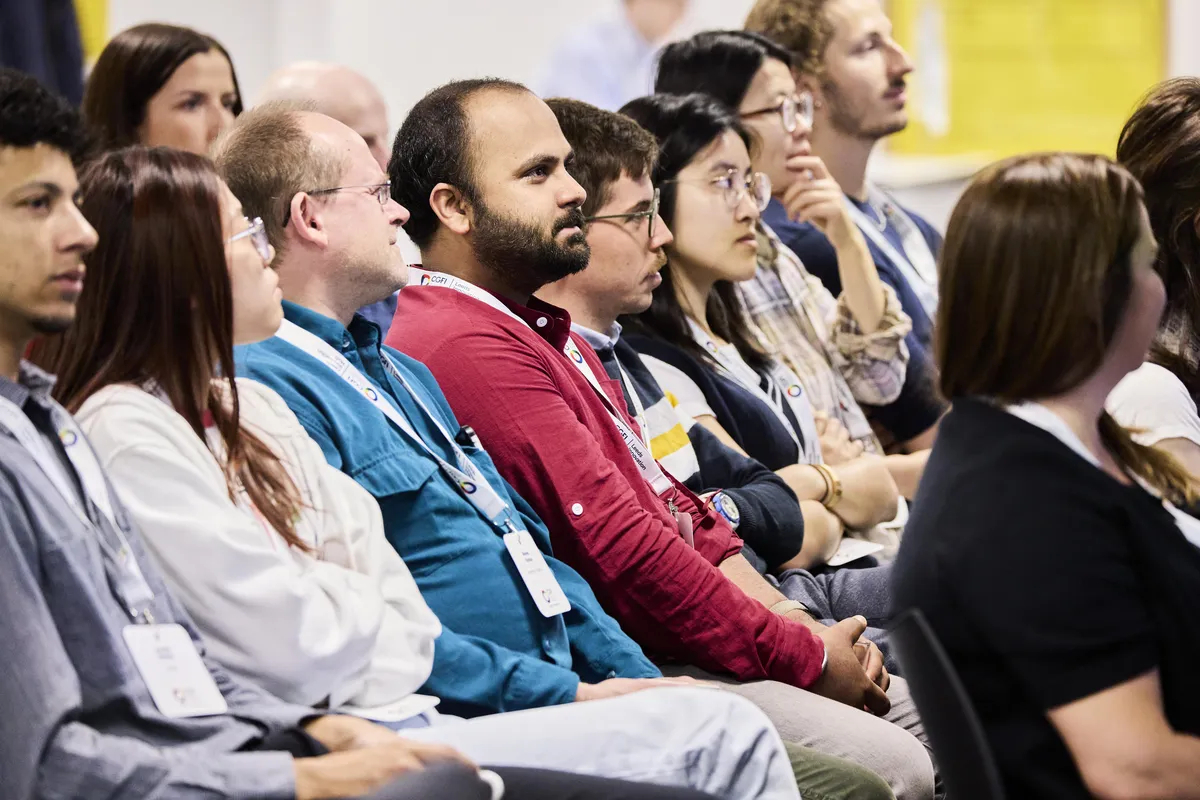
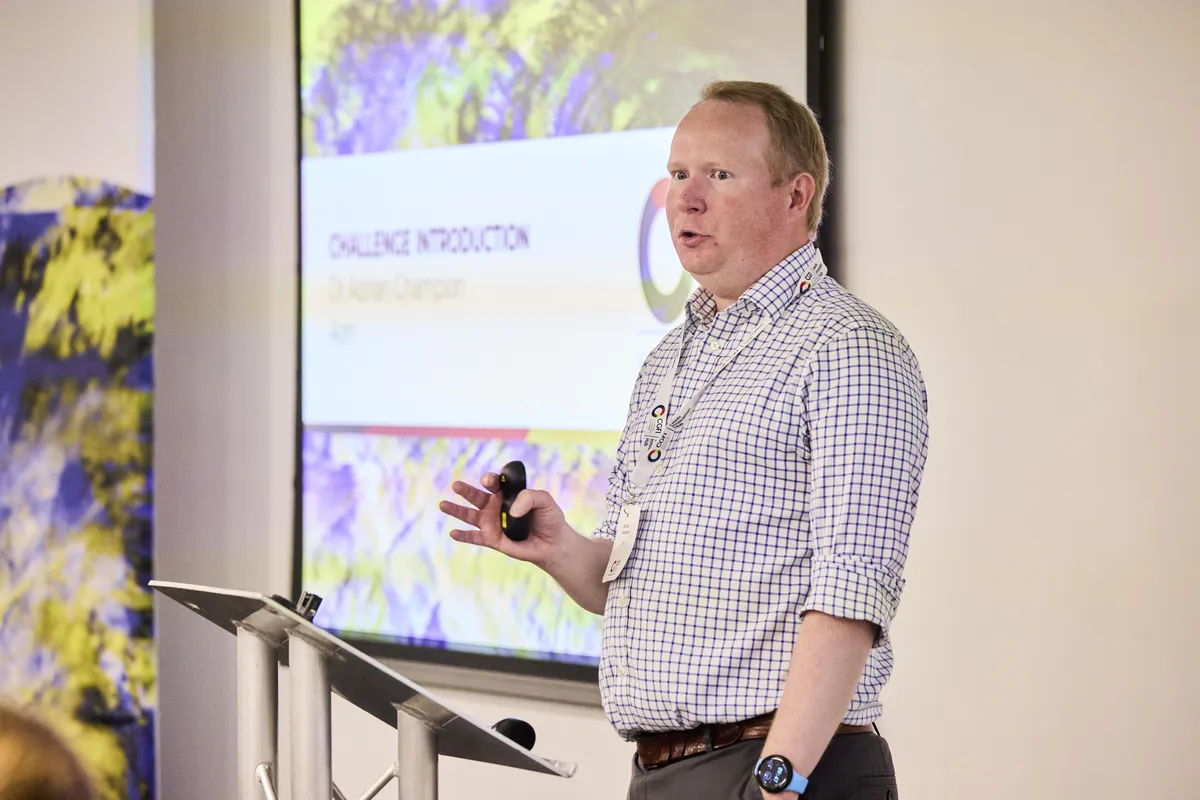



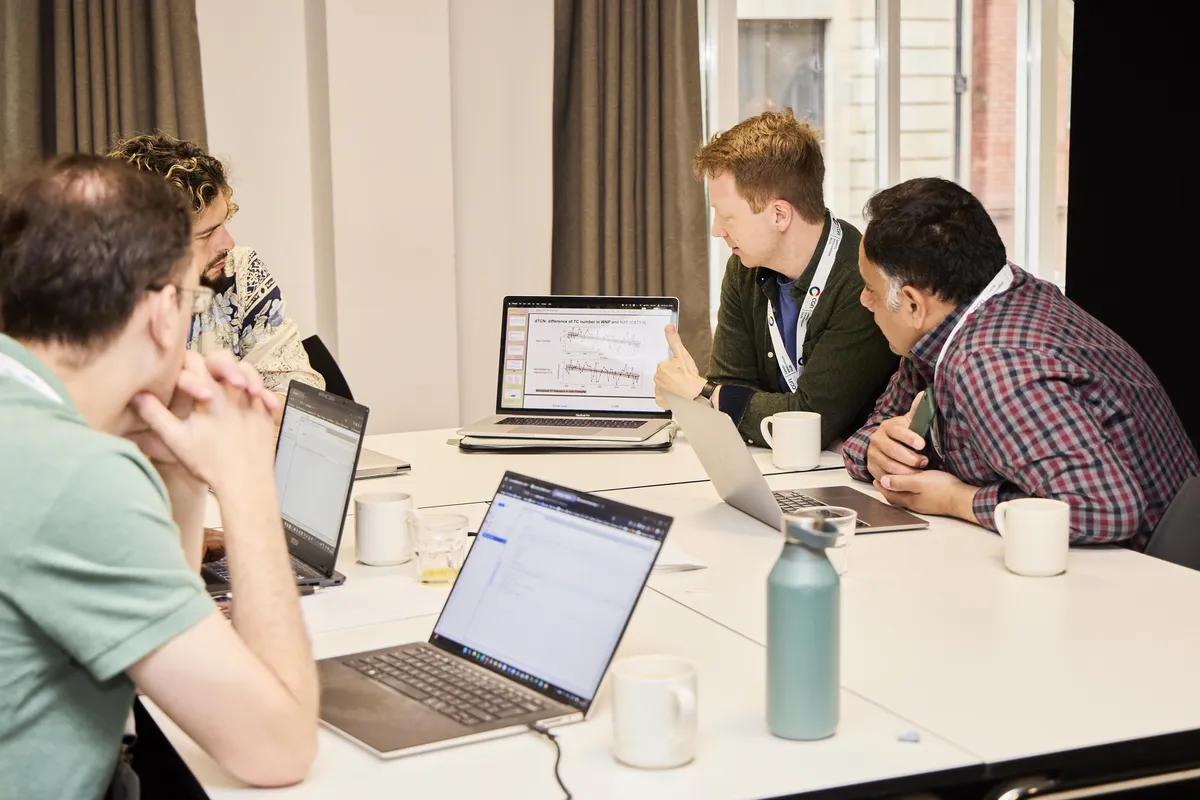
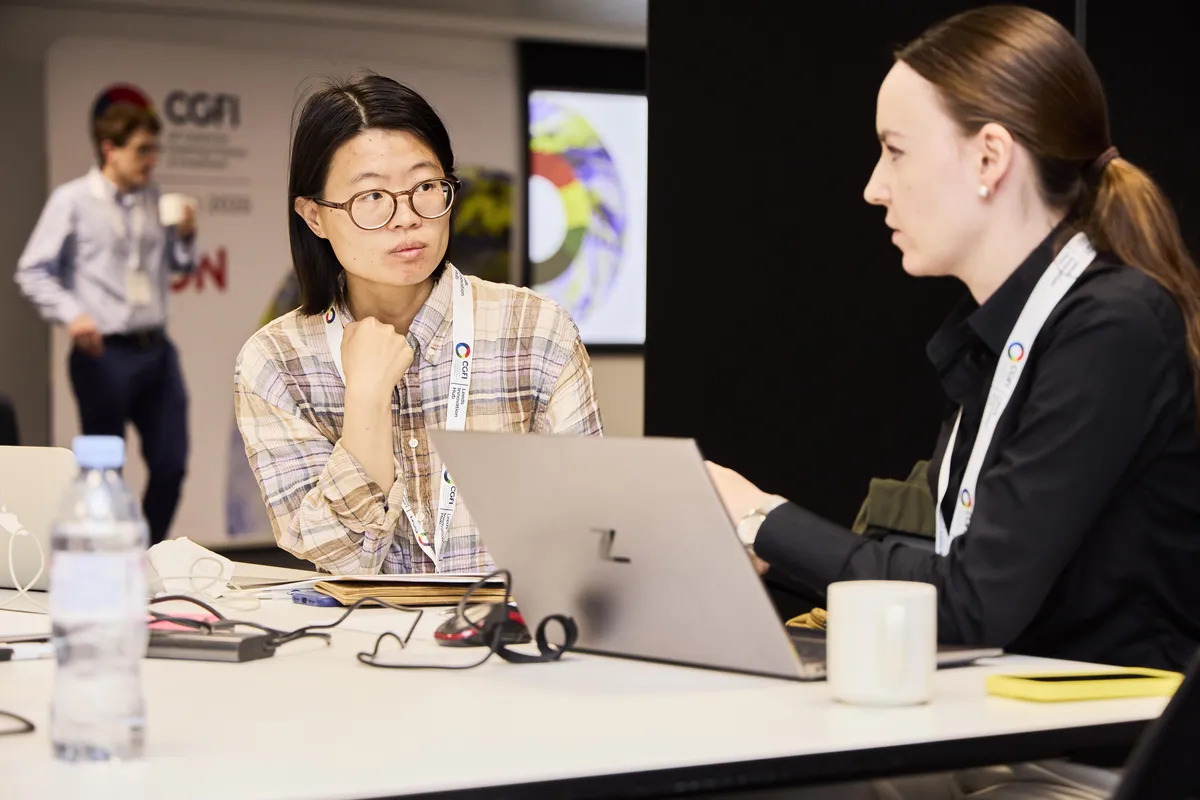
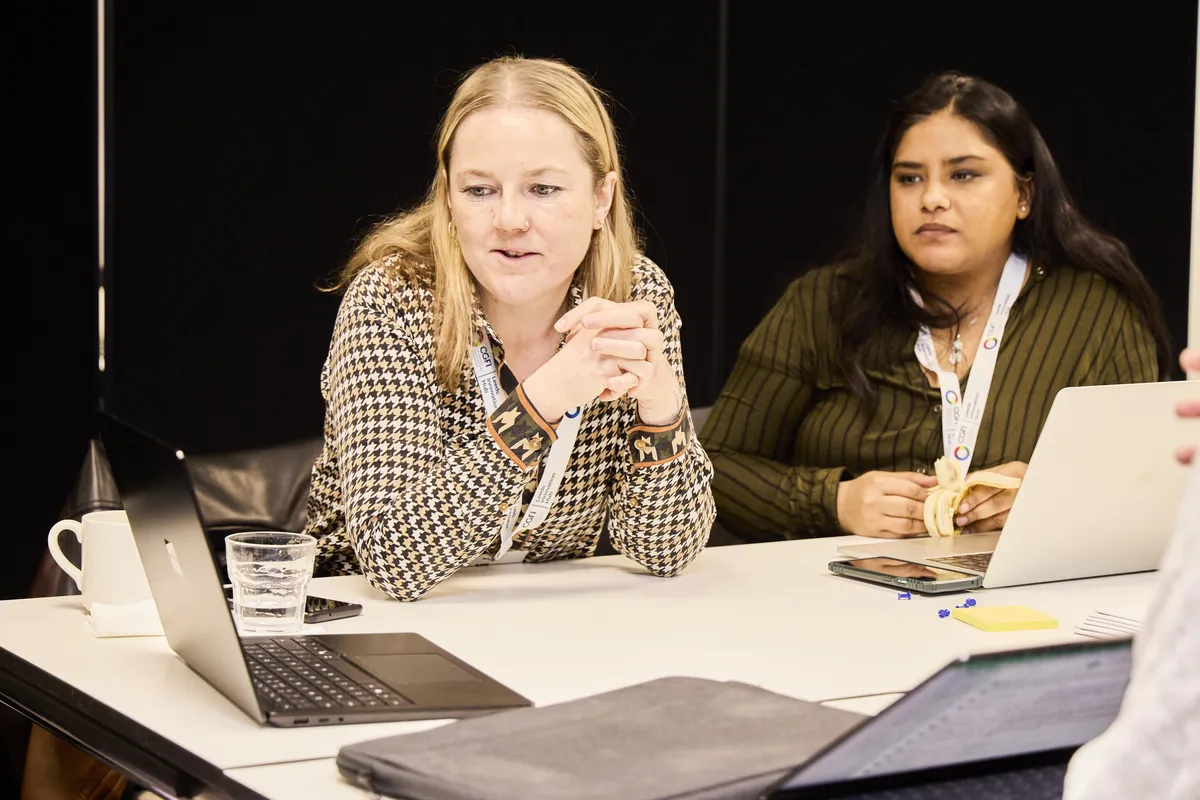
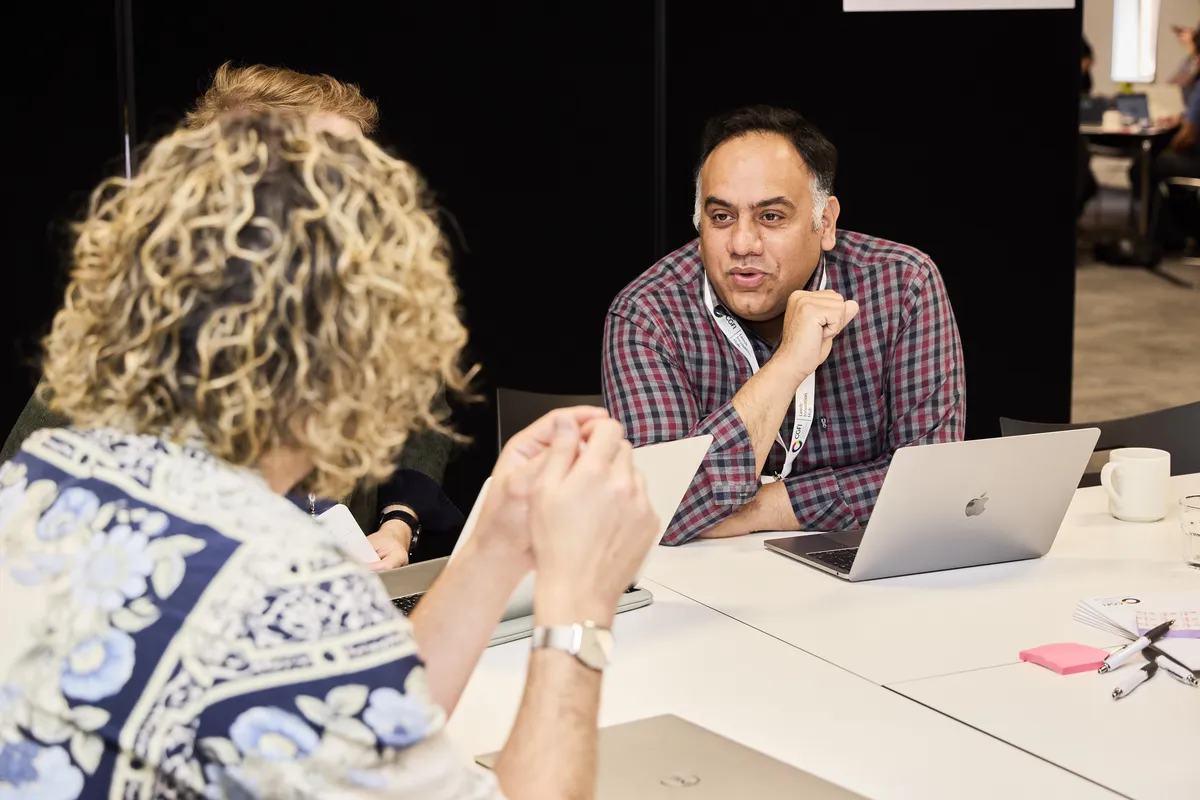
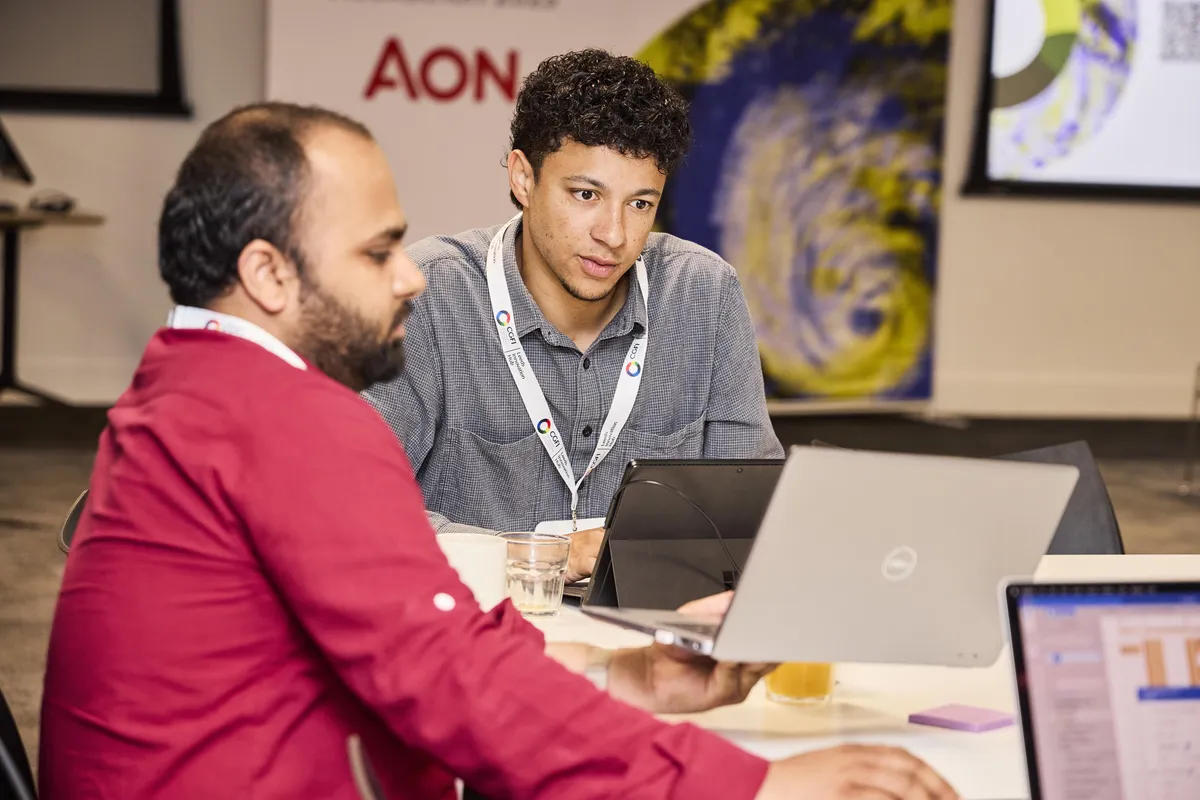

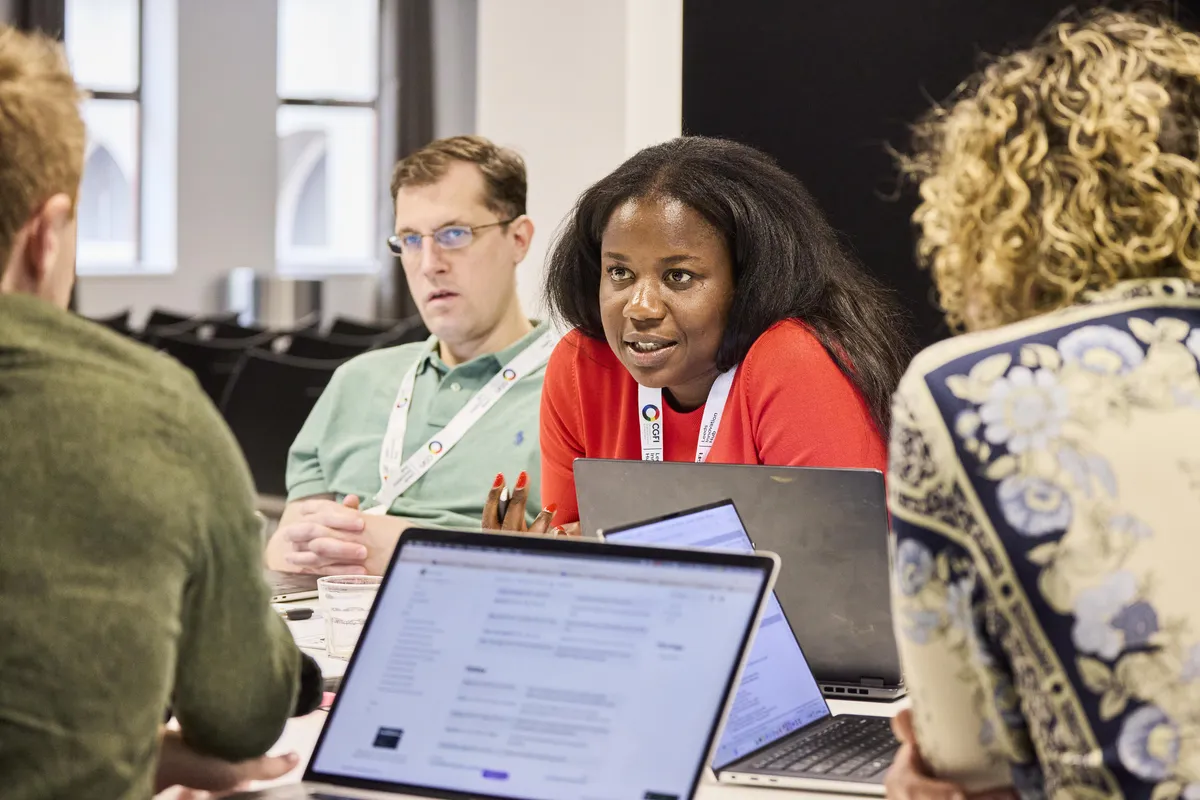
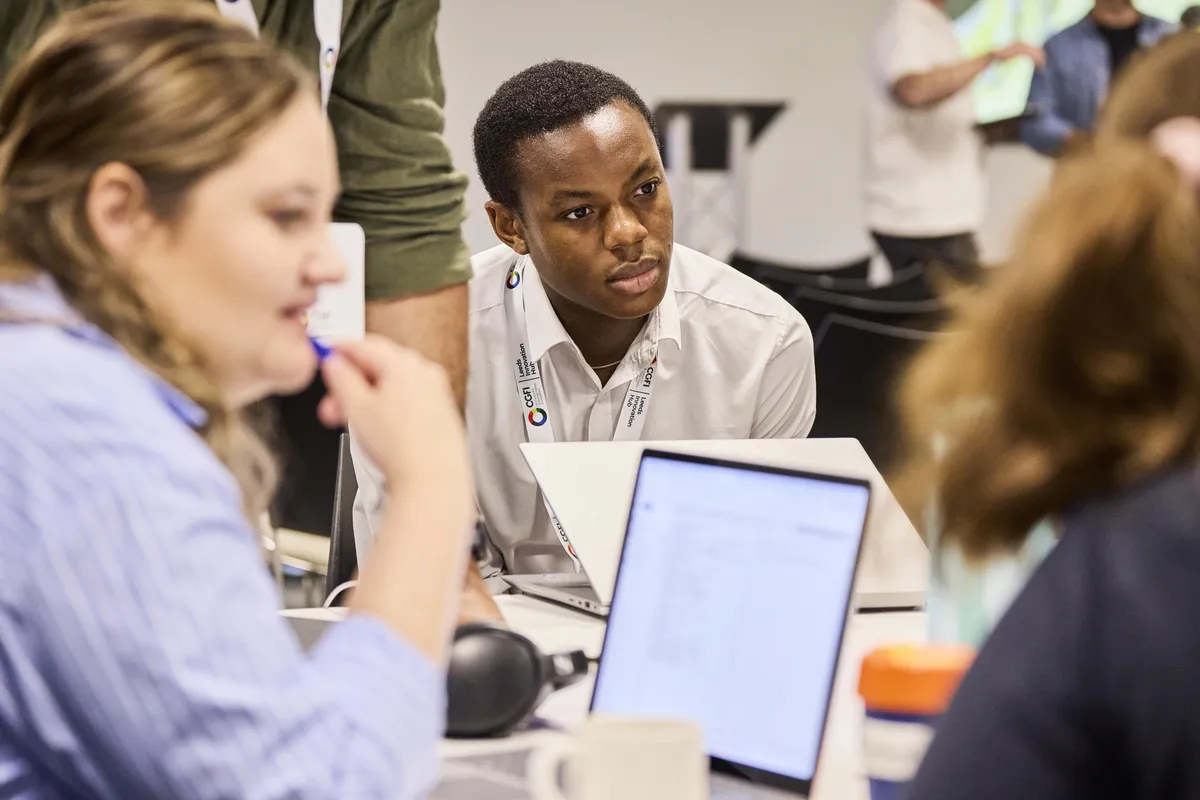
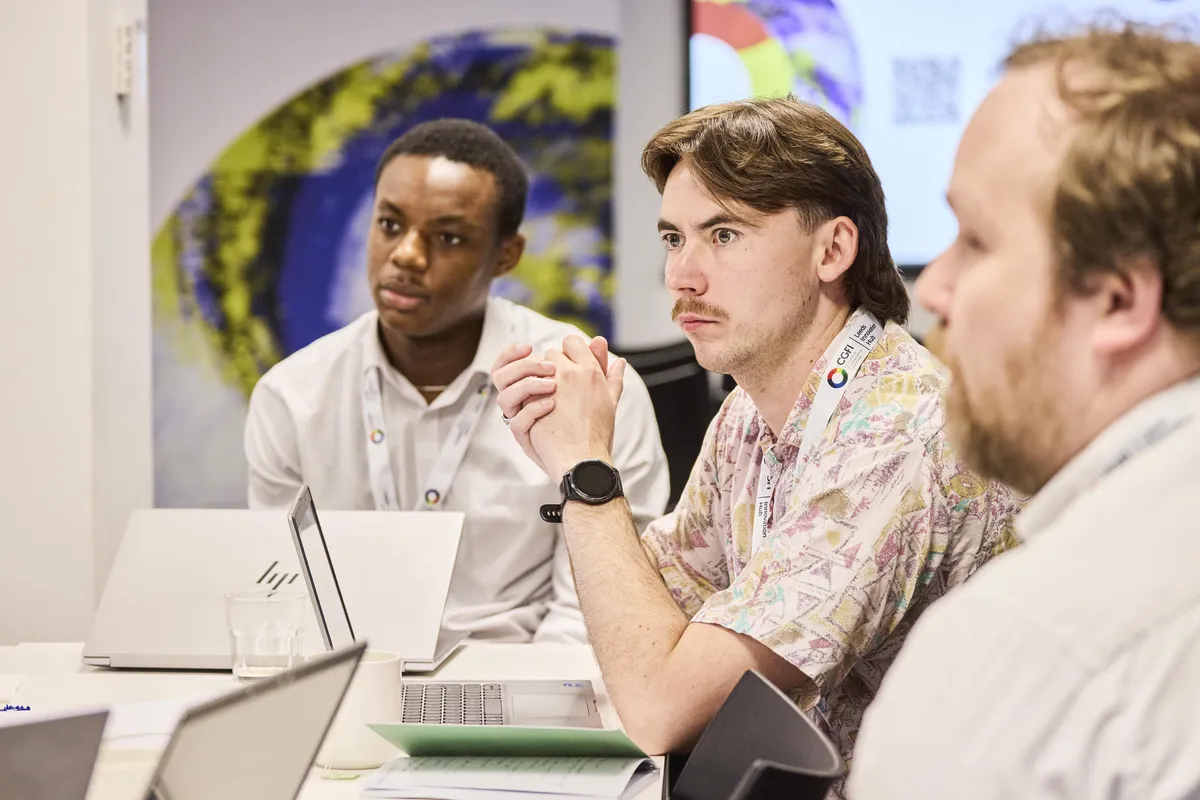

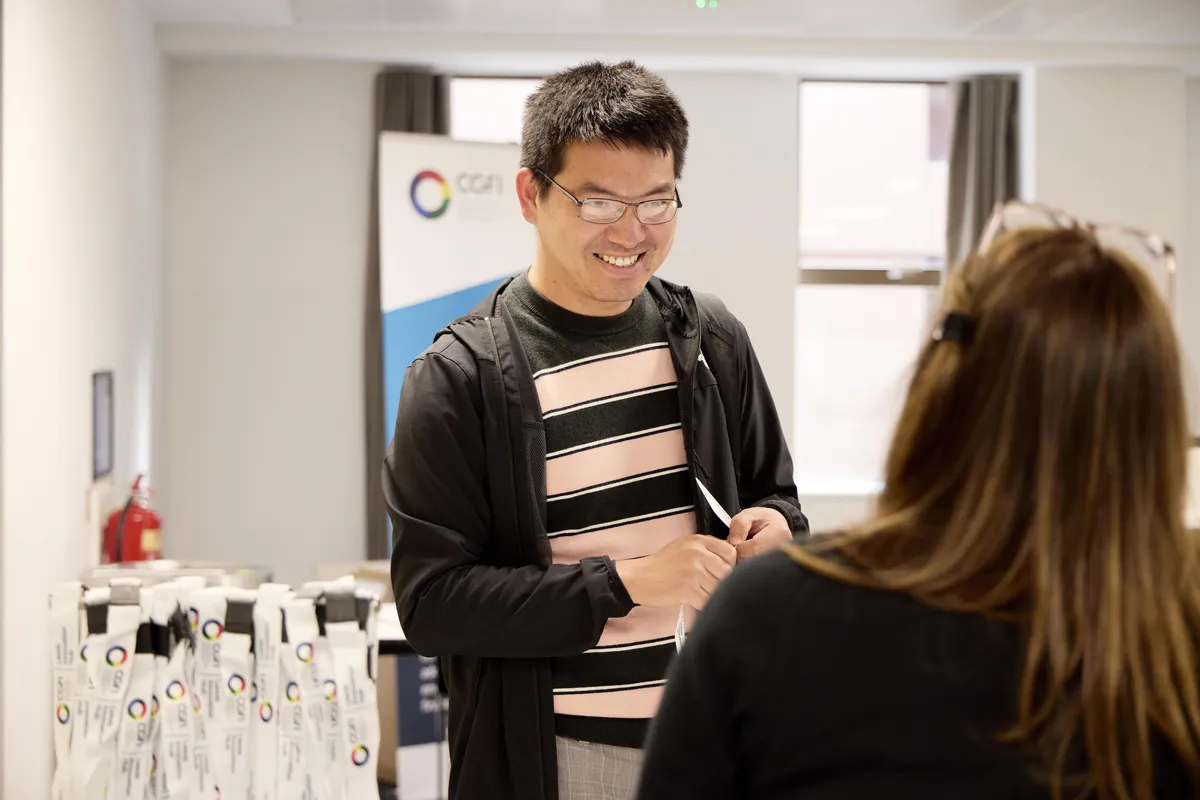
We’ll share more from the teams’ Hackathon approaches and solutions soon.
The Challenge
Objective
This was an exploratory in-person hackathon to determine whether we can improve our understanding of multi-hazards/compound events that are relevant to the reinsurance industry, with a focus on tropical cyclones.
Historic reinsurance losses show that the industry has not experienced a year where landfalling hurricanes in the USA and typhoons in Japan have occurred. But have we been lucky, or is there a meteorological reason why we shouldn’t expect this to happen?
The purpose of this work is to help the reinsurance industry understand what the probability of these events co-occurring is, and what that probability may be for the next 5-10 years.
In addition to this primary question, participants could consider other aspects of tropical cyclone data and/or their driving conditions (e.g. tropical temperatures, El Niño index), providing useful information of potential interest to the reinsurance industry.
There were several outcomes of interest to the reinsurance industry:
- What data and science is needed to improve our view of co-occurring tropical cyclones globally, historically and in the current changing climate
- A more comprehensive view of the probability of landfalling tropical cyclones in the US and Japan within a tropical cyclone season.
- What has been the historical probability of US landfalling hurricanes and Japan landfalling typhoons occurring within the same tropical cyclone season?
- Can we take a counterfactuals approach to this question and re-evaluate this probability?
- Can we use decadal forecast data to evaluate this probability, and the probability of landfalling tropical cyclones in general, for the next 5 years?
- Improved collaboration between the reinsurance industry, academia and the research community, through highlighting the research topics and approaches of the reinsurance industry Identification of the data, tools or approaches needed to understand the impacts of climate change on these views.
Background
The reinsurance industry provides insurance for the insurance companies who insure the individual, underpinning the insurance of homes, businesses, and other assets Reinsurance works by diversifying the risk, with global reinsurance companies relying on key perils not co-occurring or having a very low probability of co-occurring.
The broad context is the increasing interest in the (re)insurance market to look beyond the historical record and the current generation of risk models (catastrophe models) used in the industry to ensure a more accurate and realistic view of the risk. The industry has long had strong collaborations with academia to ensure the latest science and data is pulled through into their view of risk, and are always looking to increase their understanding of the natural hazards.
In this hackathon, teams covered a range of issues related to tropical cyclones, but one major theme was to consider a theoretical reinsurance company who insures a company who has a high risk from hurricanes in the US and a company who has a high risk from typhoons in Japan. Assuming that there is an extremely low probability of getting a reinsurance loss from a hurricane and a typhoon in the same year, this allows them to provide reinsurance to both these companies. Loss data from the past 24 years suggests that these two natural hazards have a low probability of co-occurrence: there has not been an occasion where a reinsurance loss-driving hurricane and a reinsurance loss-driving typhoon has occured within the same tropical cyclone season. The question for this hackathon was whether the reinsurance industry has been “lucky” or whether there is a reason why they haven’t experienced such losses.
Challenge statement
Are global natural catastrophe events correlated, or anti-correlated? As noted above, the loss history of landfalling North Atlantic hurricanes and landfalling typhoons, as well as severe convective storms and wildfires, suggests there is no correlation between these losses – we see a consistent number every year.
However, is this statistical luck or are there meteorological drivers? Is there a counterfactual example where this isn’t the case? Can decadal forecasts inform us of the risk of these potential correlations in the next 5-10 years as the climate continues to change? What is needed to understand the impact of climate change on this view?
In the hackathon, we want to address the following specific questions:
- What is the probability of a hurricane making landfall on south-east coast of the US in the same year as a typhoon making landfall on Japan?
- Is there a correlation between typhoon activity near Japan and hurricane activity in the North Atlantic?
- Do the number of active tropical cyclones in each basin significantly vary depending on the dataset used (e.g., observations vs historical climate runs vs UNSEEN)?
- Does this view change depending on the dataset used, e.g. reanalysis, ensemble reanalysis and stochastic datasets?
- What information can we get from decadal forecasts about activity in each basin for the next 5-10 years?
Benefits of participating
Go beyond your usual routine, acquire new skills and knowledge, and connect with experts to expand your network.
The Hackathon is an opportunity to apply your skills, generating novel solutions to real-life industry challenges and working directly with companies in insurance and risk.
Over two days in Leeds you’ll compete with other teams to tackle interesting and highly-relevant climate/insurance challenges. This will include chances to learn from and build your network with experts, specialists and peers.
Your ideas and solutions can help the (re)insurance industry look beyond the historical record and the current generation of risk models (catastrophe models) used in the industry to ensure a more accurate and realistic view of evolving risks under climate change.
- Participants from commercial organisation: a nominal registration fee of £100 to secure their place.
- Participants from HE and non-for-profit research centres: no fee
Schedule
Onboarding email
to hackathon
Guidance on how to access the platform and any background reading or research that may help you during the hackathon.
Onboarding webinar
to hackathon
The onboarding webinar will introduce the challenge, feature science talks, and demo the platform's tools and datasets.
Hackathon
10th June
in-person
Welcome to Day 1 of 2
Challenge introduction
Tools & resources
Hacking time
Networking reception
Refreshments and lunches are provided
Hackathon
11th June
in-person
Welcome to Day 2 of 2
Hacking time
Pitch presentations
Awards dinner
Refreshments and lunches are provided
Who can apply
Participants from academia, non-for-profit, and industry are welcome. As this is a technical hackathon all participants should have experience coding in R/Python.
Teams of 3 to 6 members, as well as individual applicants, are encouraged to apply. Individual applicants will be assigned to new teams formed by the selection panel.
A maximum of six teams will be chosen to compete in the challenge, fostering collaboration and diverse problem-solving approaches for a dynamic and engaging competition.
Datasets and tools
Tools
The following will be available:
- IBTrACS historical TC tracks
- ERA5 reanalysis data from 1940 to present day we will provide some raw model data as well as TC-tracked datasets)
- IRIS (Imperial Storm College Model) – 10,000 years of synthetic simulated TC data
- Decadal climate model raw data (to allow participants to explore the ENSO index and other potential drivers of TC activity) and TC-tracked datasets from DePreSys, d4pdf and the HiResMIP project
- Exposure and impact data from LitPop and EMDAT
Datasets
We will provide a software stack with libraries capable of performing analysis on all provided datasets using both Python and R scripting languages. The libraries included will allow participants to read, manipulate, perform statistics on and visualise the data.
Judging
At the end of day two, teams will be allocated 10-15 minutes to pitch their findings to a judging panel, who will evaluate their presentations.
The winners will be announced during the awards dinner.
Location
Intellectual property
Any new intellectual property (IP) created during the event will be dedicated to the public domain. This means that the IP can be freely used, shared, and built upon by anyone without any restrictions or the need for permission. This approach encourages open collaboration and innovation, allowing the broader community to benefit from and contribute to the ideas generated during the event.
Outputs
The organisers reserve the right to document and disseminate findings from the hackathon through various channels. We also encourage teams to create their own outputs. This includes, but is not limited to:
- Publications: Academic papers, research articles, and reports.
- Write-ups: Blog posts, newsletters, and online articles.
- Communication Materials: Social media updates, press releases, and promotional content.
By participating in the hackathon, you acknowledge and agree that your contributions may be included in these outputs, with appropriate credit given to all contributors. This helps to share the knowledge and innovations generated during the event with a broader audience, fostering further collaboration and impact for the insurance sector as a whole.
Contact
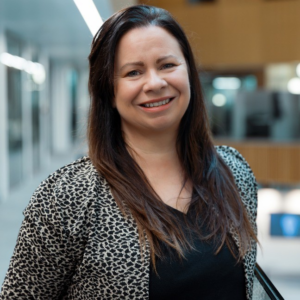
Patricia Grant - Leeds Innovation Hub Manager
UK CGFI Leeds │ University of Leeds
Contact: [email protected]
Applications
How to apply - COMPETITION NOW CLOSED
COMPETITION NOW CLOSED
Applications will opened from 17th February and close 24th April 2025.
Before applying, please check the eligibility criteria below.
All participants must be able to attend the Hackathon in-person in Leeds, 10-11th June 2025, 09:00-21:00 each day.
The hackathon’s selection panel will review applications to finalise already formed teams and new teams of assigned individual participants.
Ready to apply?
Individual and team applications will be asked to include the following information in their application form:
- Participant details: Include affiliations of all members.
- Supporting statement: Summarise skills, experience and motivation in applying to join the Hackathon, and planned approach.
- Funding request: Indicate if team members in higher education/research or not-for-profits would like to request travel funding.
Eligibility
Participants from academia, non-for-profit, and industry are welcome.
Team applications
- Format: Teams should consist of 3-6 people.
- Experience: Teams can include early-career or senior researchers, and/or industry financial risk practitioners.
- Skills: As this is a technical hackathon, participants should have some experience with Python or R programming languages.
Individual applications
- Format: Individuals can submit an application with the understanding that they will be assigned to a newly formed team of 3-6 members.
- Experience: Applicants should be early-career / senior researcher or an industry financial risk practitioner.
- Skills: As this is a technical hackathon, participants should have some experience with Python or R programming languages.
Who should apply
This hackathon may be of interest to professionals from the following disciplines:
- Data Science
- Programmers
- Climate Risk Analysts
- Finance/Insurance Professionals specialising in climate change risks
- Climate Researchers
Timeline
-
17th February - Open call for applications
-
24th April - Close call for applications
-
28th April - Successful teams notified and invited to the onboarding webinar
-
5th May - Teams to confirm participation (propr to)
-
May - Onboarding email
-
May - Onboarding webinar
-
10-11th June - Hackathon in-person competition - Leeds, West Yorkshire
Selection Panel
- All applications will be reviewed by the selection panel.
- Successful teams will be notified via email, and be asked to confirm acceptance with 7 days to secure their place.
Travel bursaries
A limited number of travel bursaries are available for those working in higher education or not-for-profit organisations.
Each bursary can cover travel and accommodation costs up to a maximum of £500.
For participants who have been awarded a travel bursary, the UK CGFI will directly pay the hotel for their bed and breakfast costs. All other travel expenses can be claimed post-event via the University of Leeds expense claims process.
Expenses claims must adhere to the University of Leeds policy:
- Travel: Economy class only.
- Accommodation: Hotel in Leeds, £120 per night bed and breakfast (or £125 if using the hotel reservation link)
When completing the application form, please indicate which team members would like to apply for support.
Access requirements
Please contact Trish Grant at [email protected] regarding any access requirements or other queries.
Partners
We worked with leading experts from academia, government and industry during the Hackathon. See below for more on our expert contributors, and the event partners who co-designed the challenge.
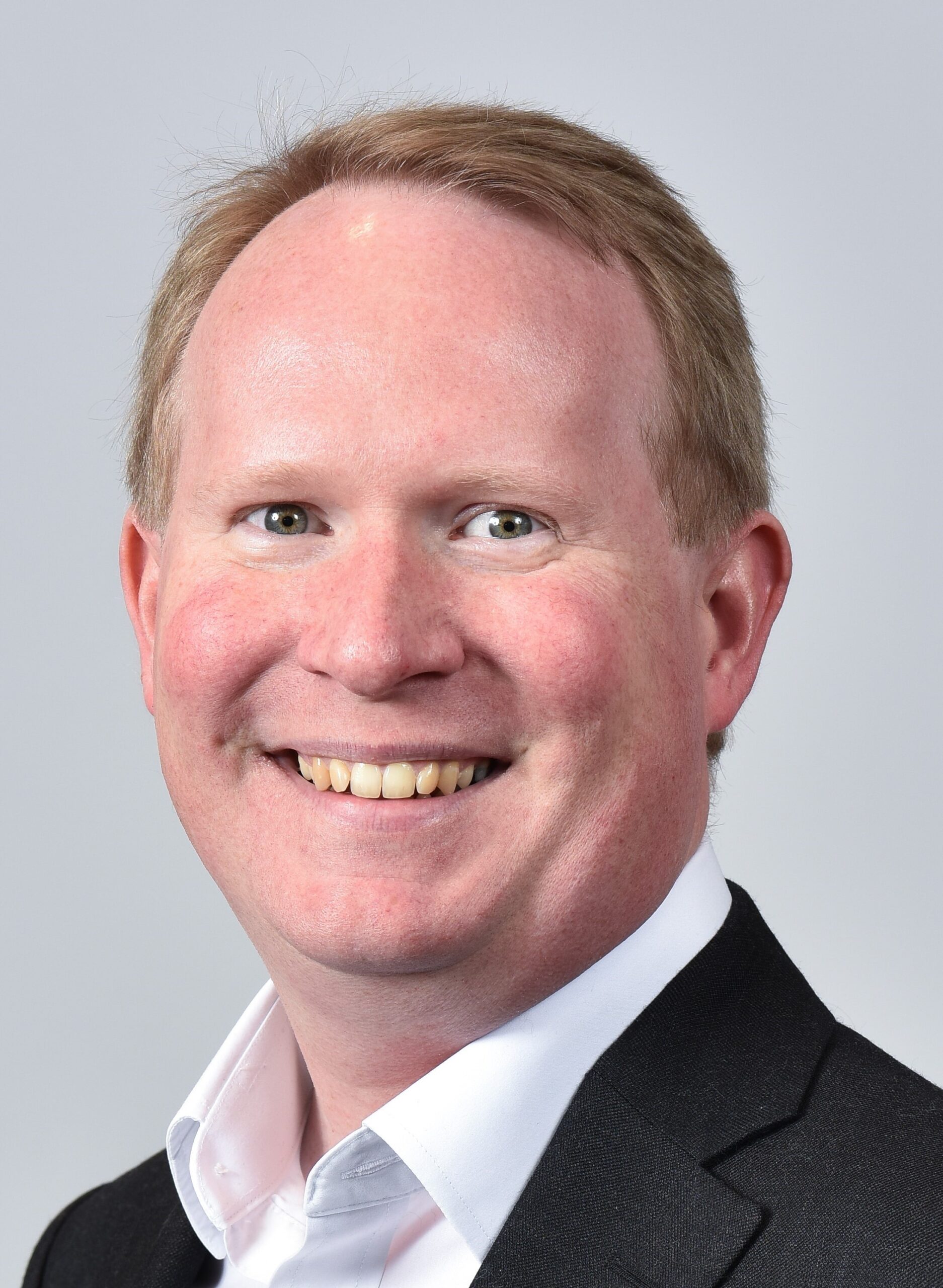

Aon is in the business of better decisions. The Aon team are part of Aon’s Reinsurance Solutions, working with clients to improve their understanding of natural catastrophes. We provide our clients with advice and solutions that give them the clarity and confidence to make better decisions to protect and grow their business. Whilst this has typically been through the use of industry catastrophe models, increasingly we look to provide an alternative view, that allows us to benchmark the catastrophe models, and provide more detailed insights to the risk. Our backgrounds include engineering, catastrophe model development, meteorological and climate science.
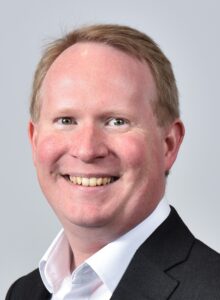
Dr Adrian Champion
Adrian heads the Climate Analytics team for UK & EMEA within Risk Capital at Aon. He has a PhD in Meteorology from the University of Reading, focussing on European windstorms, flooding and climate change. He spent 8 years working in academia at Reading and the University of Exeter, researching natural hazards and climate change before joining the UK Met Office where he led a scientific consultancy team; he joined Aon in June 2021. His team develops bespoke tools and solutions to quantify the impacts of climate change, to help clients understand how climate change will impact them.
The ASPECT project is a Horizon Europe funded project, in which the Met Office and the University of Leeds are partners. It is examining how climate science can better service the user community with climate information on time-scales from a season ahead to three decades ahead, working closely with key users from in finance, agriculture, government and and the humanitarian sector.
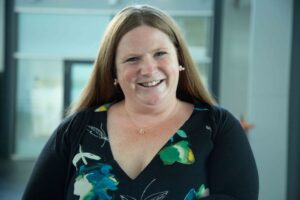
Dr Freya Garry
Freya is leading work within the ASPECT EU project working with the finance sector and the humanitarian sector. Freya has a PhD in Climate Science from the University of Southampton, and has worked at the University of Exeter, before joining the Climate Resilience team in the Met Office in July 2019, where she has particular interests in compound events and making climate science useful and useable for society. As a Senior Scientist, Freya works across climate science to prototype service development and user engagement and communication.

The UK Centre for Greening Finance and Investment (CGFI) is a national centre established to accelerate the adoption and use of climate and environmental data and analytics by financial institutions internationally. It will unlock opportunities for the UK to lead in greening finance and financing green.
Hosted at Nexus, University of Leeds, the Hub is a platform to connect wider UK science and innovation with financial institutions, focusing on climate and environmental analytics. The Hub nurtures and supports a vibrant emerging ecosystem of enterprises providing climate and environmental analytics (CEA) to finance institutions. It provides a route by which needs are understood and the latest science is made accessible, commercialised, and exported globally, placing the UK as global leader for climate and environmental analytics for financial institutions.

Prof Iain Clacher
Iain is Professor of Pensions & Finance at Leeds University Business School. He is an expert on pensions and retirement savings, most notably on retirement decision-making, pension fund investment, infrastructure investing, sustainable pension systems, trustee governance, and fund management costs and fees. He is the Co-lead for UK CGFI and Director of the Leeds Innovation Hub.

Patricia Grant
Patricia (‘Trish’) is the Innovation Hub Manager leading the development of the UK Centre for Greening Finance and Investment (CGFI) Leeds Innovation Hub, at the University of Leeds. Working at the intersection of climate science and industry, she is responsible for delivering outcomes associated with innovation and ecosystem building within UK CGFI, and leads delivery on the 2025 Hackathon .

The Grantham Institute is Imperial College London's hub for climate change and the environment, and one of Imperial's seven Global Institutes established to promote inter-disciplinary working and to meet some of the greatest challenges faced by society. We drive forward discovery, convert innovations into applications, train future leaders and communicate academic knowledge to businesses, industry and policymakers to help shape their decisions.

Prof Ralf Toumi
Ralf is Director of the Grantham Institute - Climate Change and Environment. He is advisor to the WMO Asia-Pacific Typhoon Collaborative Research Center and on the board for the Japan typhoon dropsonde program. Commercial interactions include being a founding director of OASIS LMF Ltd which is promoting open access catastrophe modelling for the insurance sector and others. He is Co-Investigator in the UK Centre for Greening Finance and Investment. Over his career his research has covered a wide range of topics in climate science, atmospheric chemistry and physics. He has supervised 34 PhD students and leads Europe's largest research group on tropical cyclones whihc is building the IRIS storm model.
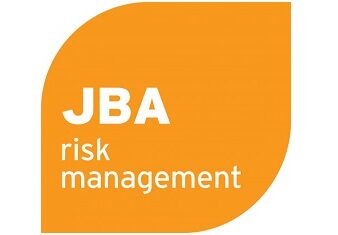
JBA Risk Management is the global leader in flood risk science. Affectionately known as The Flood People®, our flood maps, catastrophe models, and data are used by some of the world’s largest insurers, financial institutions, property companies and governments. As part of the JBA group, an independent and employee-owned organisation, established over 25 years ago, we work closely with leading academic institutions in the field of flood risk. By providing a forward-thinking view of climate resilience, we help clients and communities build resilience to flood and environmental risk in a changing climate.

Dr Alison Poulston
Alison is technical lead for statistics at JBA Risk Management, interested in the representation of extremes in weather modelling and how their uncertainty propagates through to our understanding of risk from flooding, under present and future conditions. She has a PhD in environmental Bayesian statistics from the University of Sheffield.
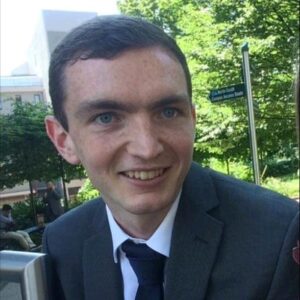
Dr John Ashcroft
John is an atmospheric sciences expert at JBA Risk Management, specialising in the representation and quantification of risk from high-impact weather events and extreme weather seasons. John has a PhD in fluid dynamics from the University of Leeds, with a focus on tropical meteorology and the predictability of tropical cyclones.
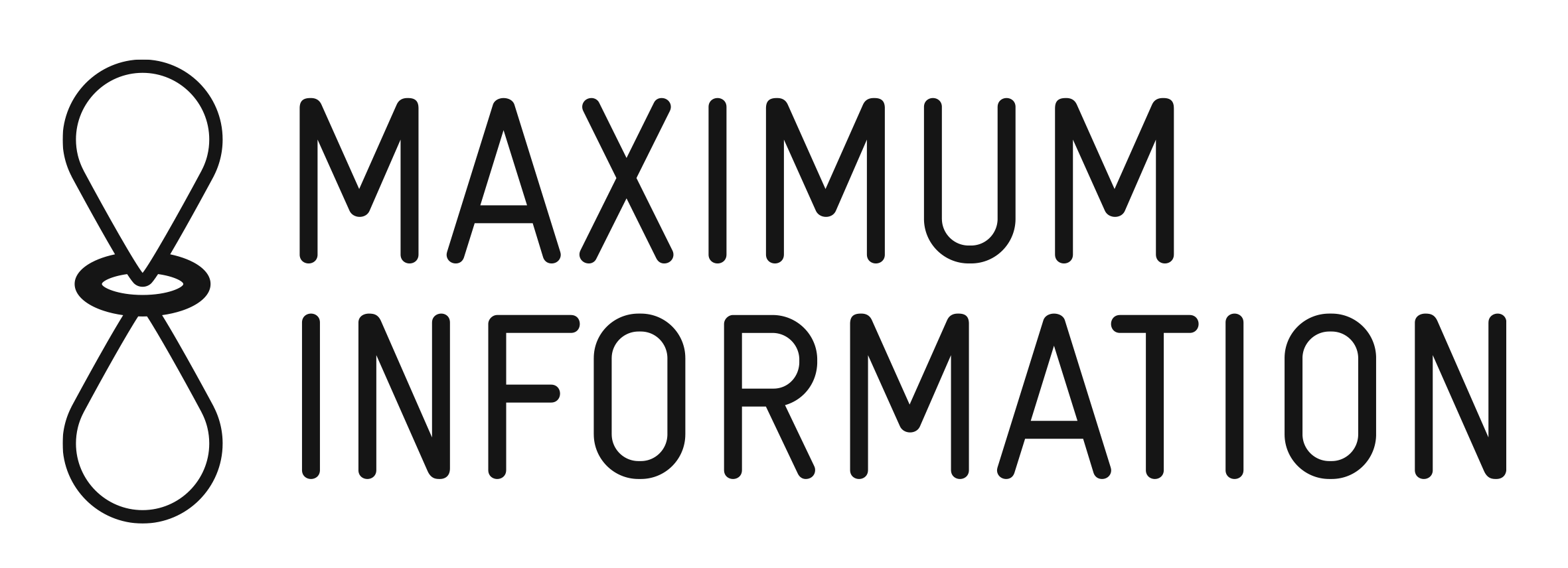
Founded in 2020, Maximum Information is committed to increasing societal resilience to disasters through evolving risk modelling of natural hazards.
Key to our vision is proving the value that catastrophe models have in forming real-world views of risk and empowering end-users to make confident decisions.
Maximum Information equips the re/insurance sector with unique catastrophe modelling analytics solutions which maximise the information risk modelling can, and should, provide.

Dr Tom Philp
Tom is Chief Executive Officer of Maximum Information. He has a PhD in Meteorology from the University of Reading, and was the Insurance Sector Champion for the Sector Engagement of the EU’s Copernicus Climate Change Service between 2015-2017. He sits on a number of insurance industry advisory/steering groups, and is an editor of the Journal of Catastrophe Risk and Resilience. He previously worked in AXA XL’s Science & Natural Perils function, and spent time on secondment with Blue Marble Microinsurance.

Prof Jason A Lowe OBE
Jason is Chair in Interdisciplinary Climate Research, Priestley Centre, University of Leeds, and also Principal Fellow/Head of Climate Services for Government at the Met Office.
Jason has over 20 years’ experience as a climate researcher and research leader, contributing to over 200 publications on a diverse range of subjects relevant to both climate mitigation and adaptation.

Dr Joshua Macholl
Josh works as a Climate Scientist in the Understanding Climate Change team studying the future characteristics and impacts of tropical cyclones in the Southwest Indian Ocean.

The Centre for Environmental Modelling And Computation (CEMAC) aims to provide a core of technical and scientific expertise related to research computing applications in environmental research and teaching at the University of Leeds. Advances in computing techniques, data workflow, and hardware have led to an increase in the complexity of scientific numerical models and data products used in environmental science, as well as challenges in data handling, visualisation and communication. Both scientific and technical expertise is required to fully harness these advances and exploit them to tackle the grandest challenges in environmental and Earth System sciences. CEMAC is helping to tackle complex problems, pushing the frontiers of scientific research, and helping to provide solutions to some of the most pressing problems faced by society.
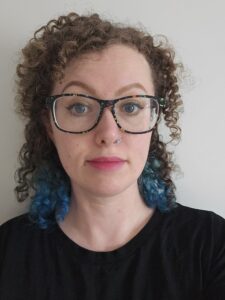
Dr Anne Barber
Anne Barber is a research software engineer based in CEMAC (Centre for Environmental Modelling and Computation) at the University of Leeds. Her role in CEMAC is to support researchers in the School of Earth and Environment with data science techniques, full-stack web development, Earth system modelling and general High Performance Computing requirements. She has a PhD in Atmospheric Science and experience working in the cat modelling industry as a former catastrophe risk analyst at JBA Risk Management.

The Department of Meteorology at the University of Reading (UoR) is one of the largest of its kind in Europe and carries out internationally leading research on physical and dynamical processes in the climate system across temporal and spatial scales from cloud microphysics to global climate change. In the 2014 REF, 86% of our research was graded as world leading or internationally excellent. UoR is a formal Academic Partner of the Met Office and hosts about 20 Met Office scientists. The Department of Meteorology hosts the Climate Directorate of NCAS as well as NCAS-CMS (Computational Modelling Services).
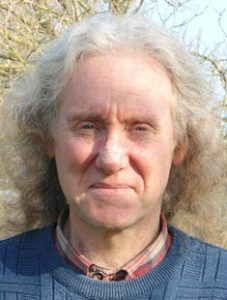
Dr Kevin Hodges
Dr Kevin Hodges (UoR) is a Principal Research Scientist in NCAS-Climate and the Dept. of Meteorology at UoR. He has conducted research over the past 30 years into high impact weather systems in the areas of climate and Numerical Weather Prediction (NWP). During this period, he has developed the TRACK analysis system that can be used to identify and track a wide range of weather systems, and produce spatial statistics, storm centred composites and NWP weather system error analysis. Dr Hodges previously worked on the XWS, WISC and COPERNICUS Operational Wind Storm Service windstorm projects and is currently involved in the follow-on COPERNICUS windstorm project.




